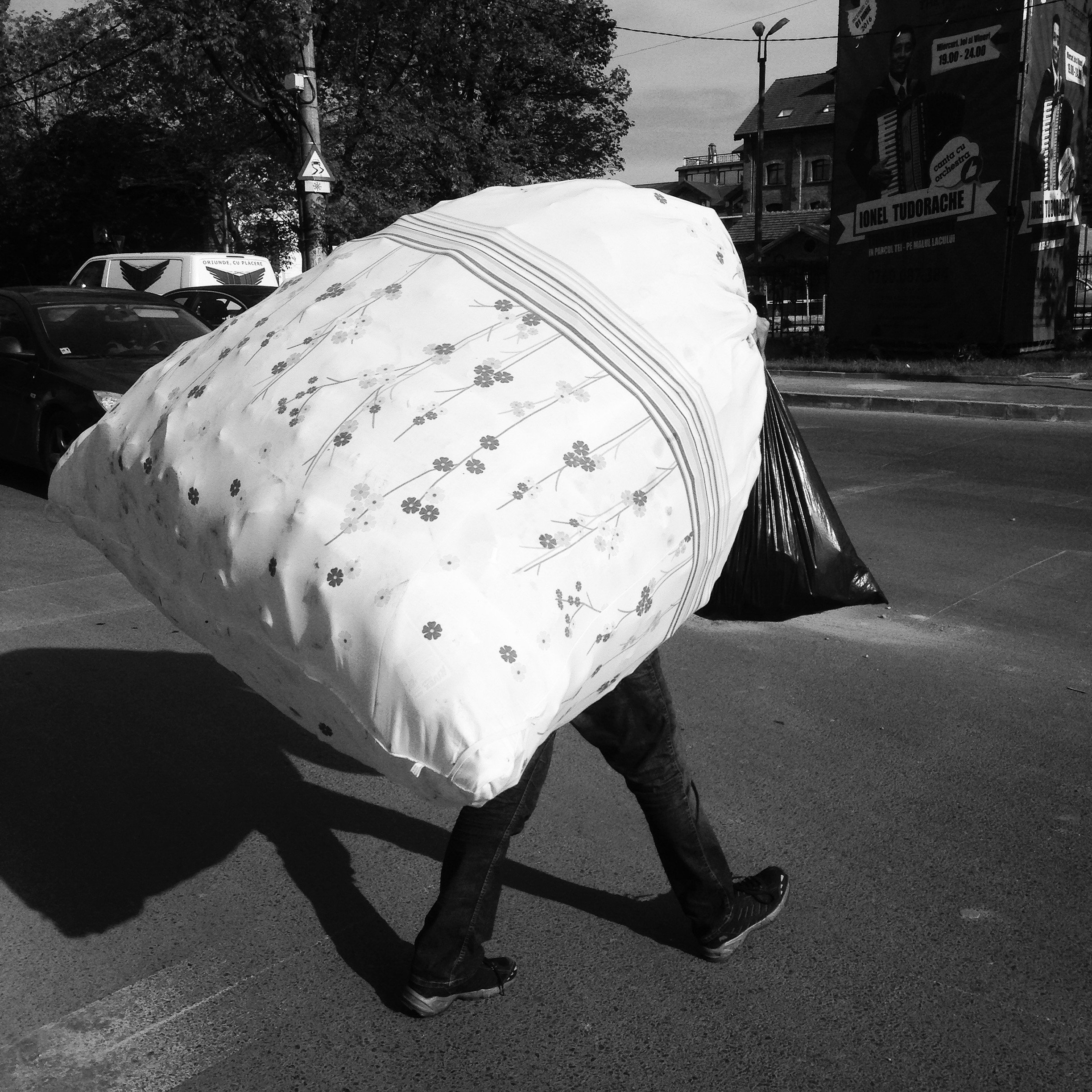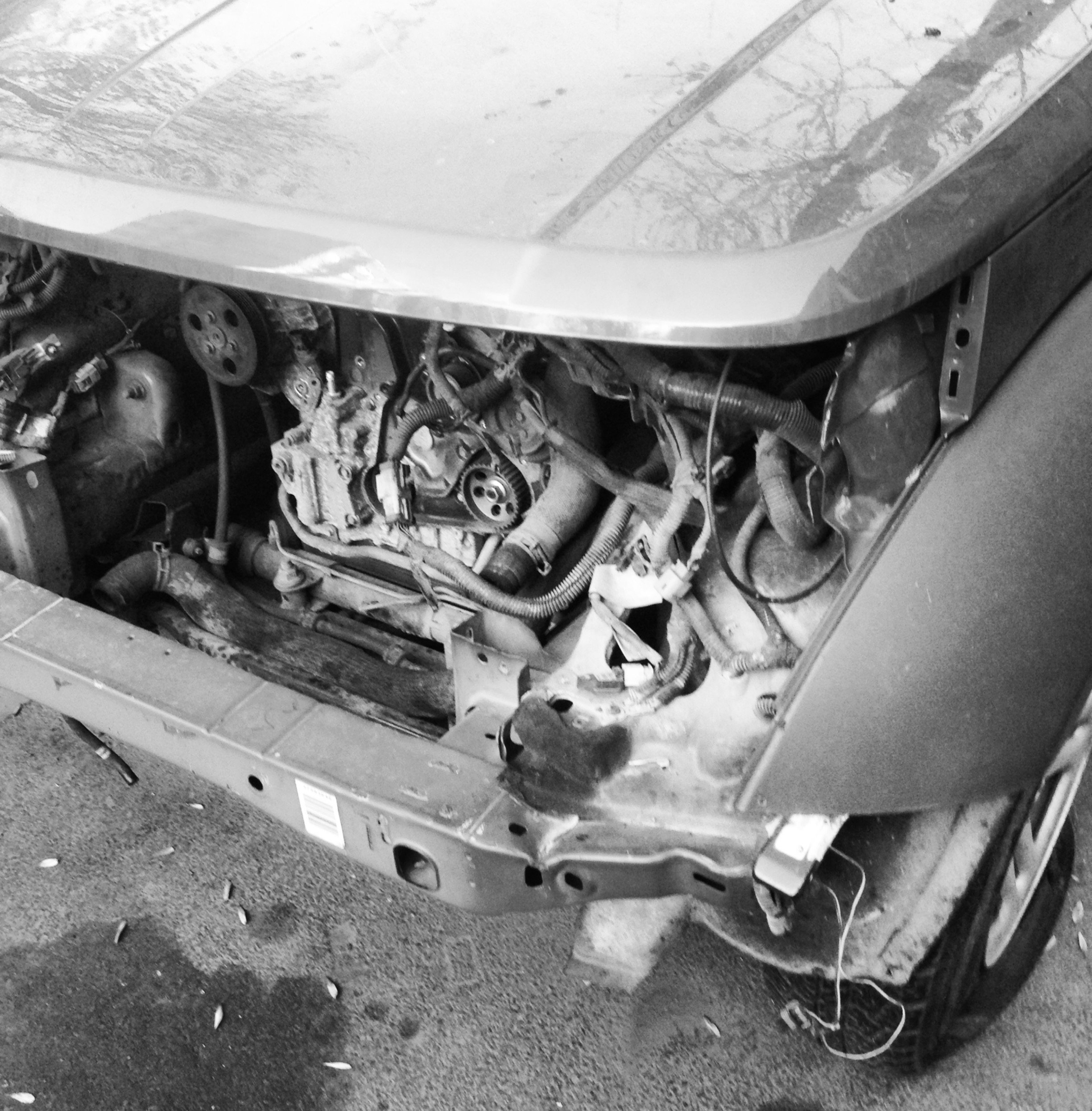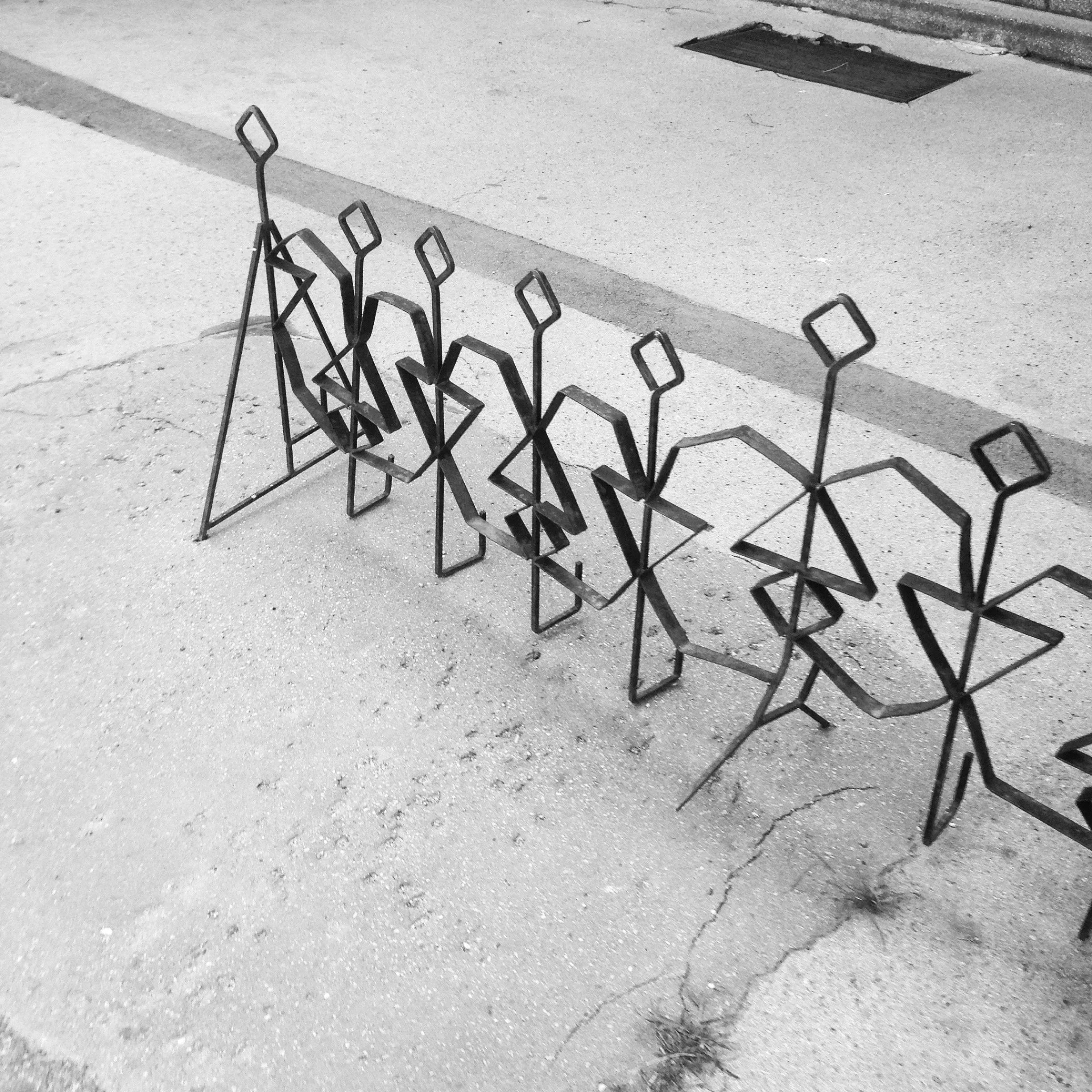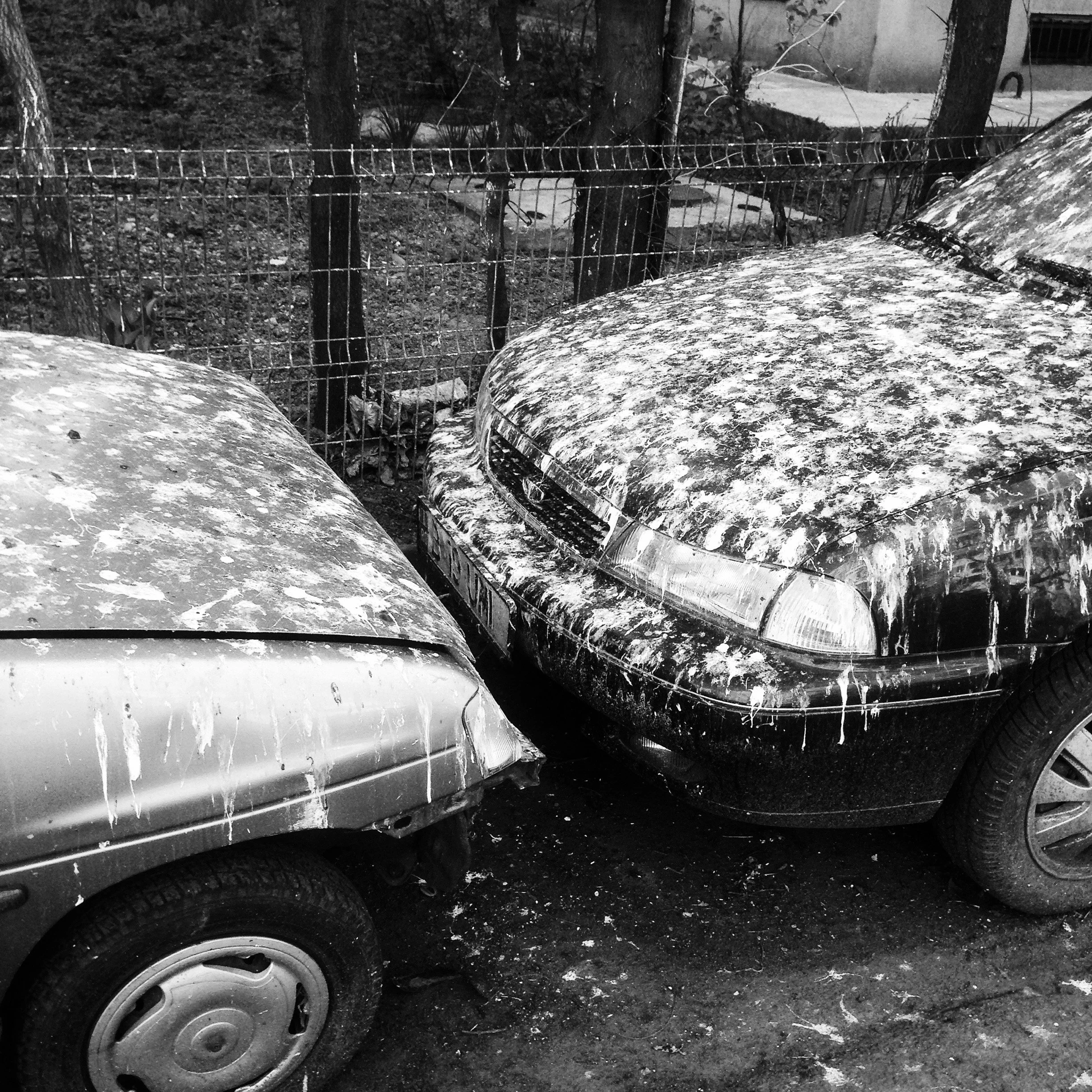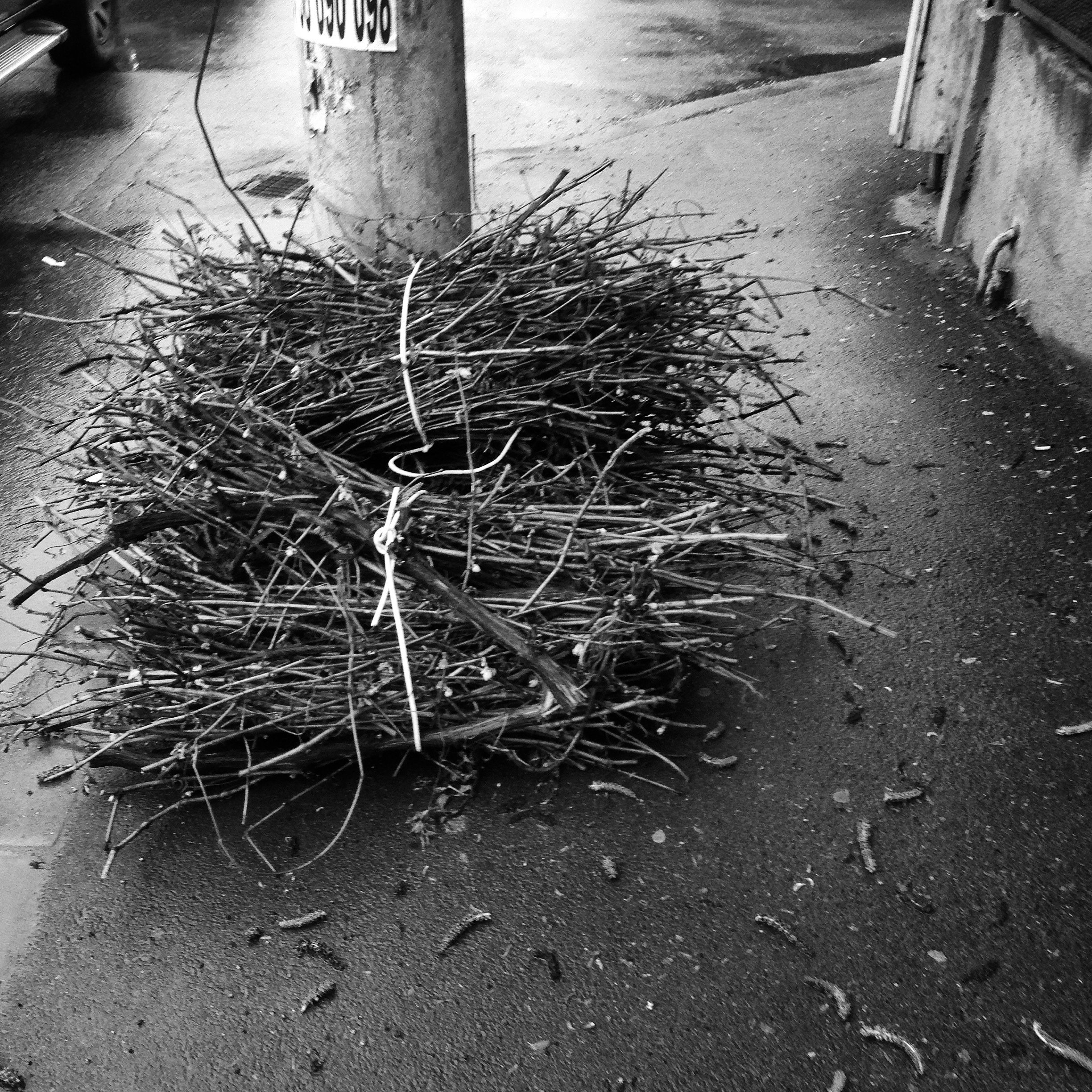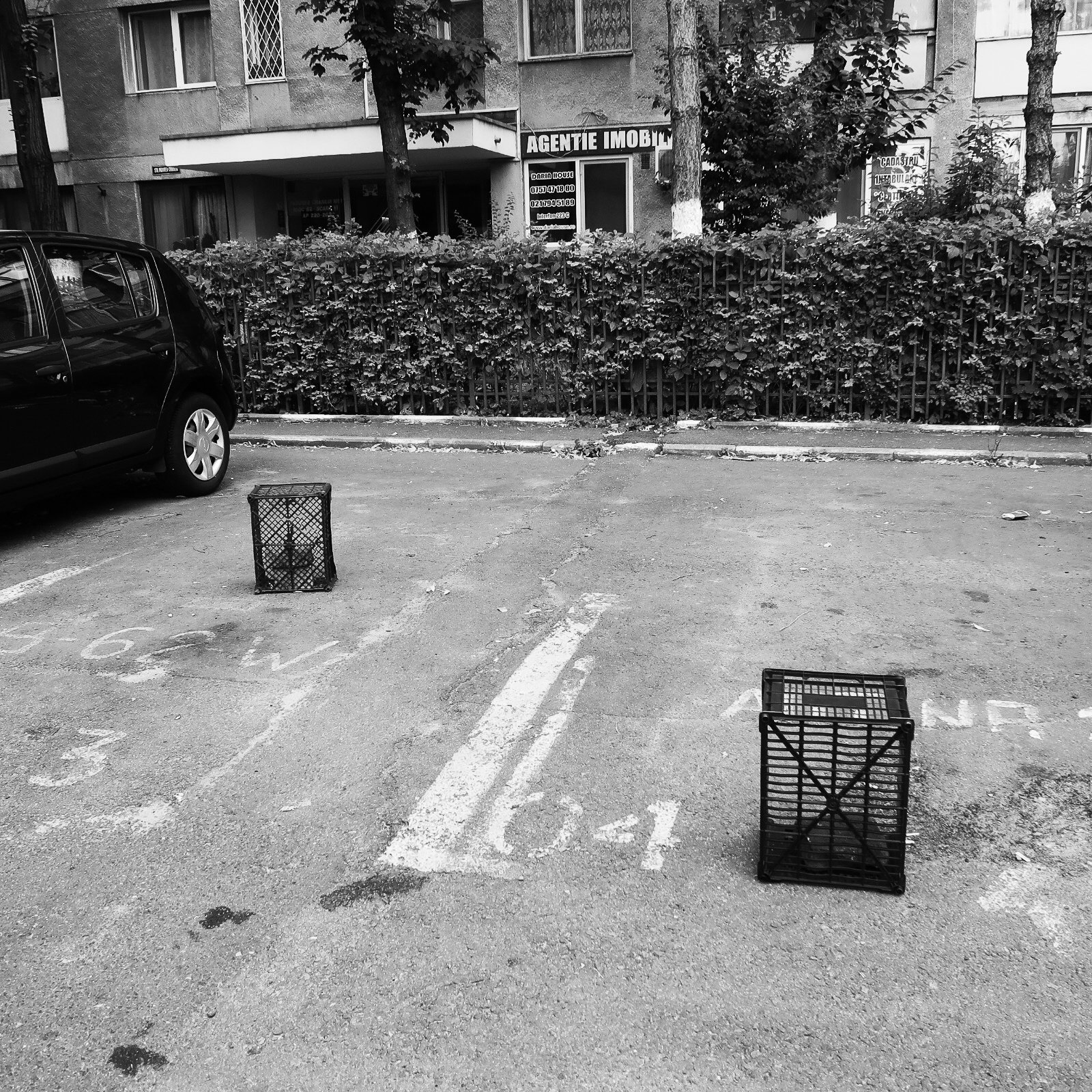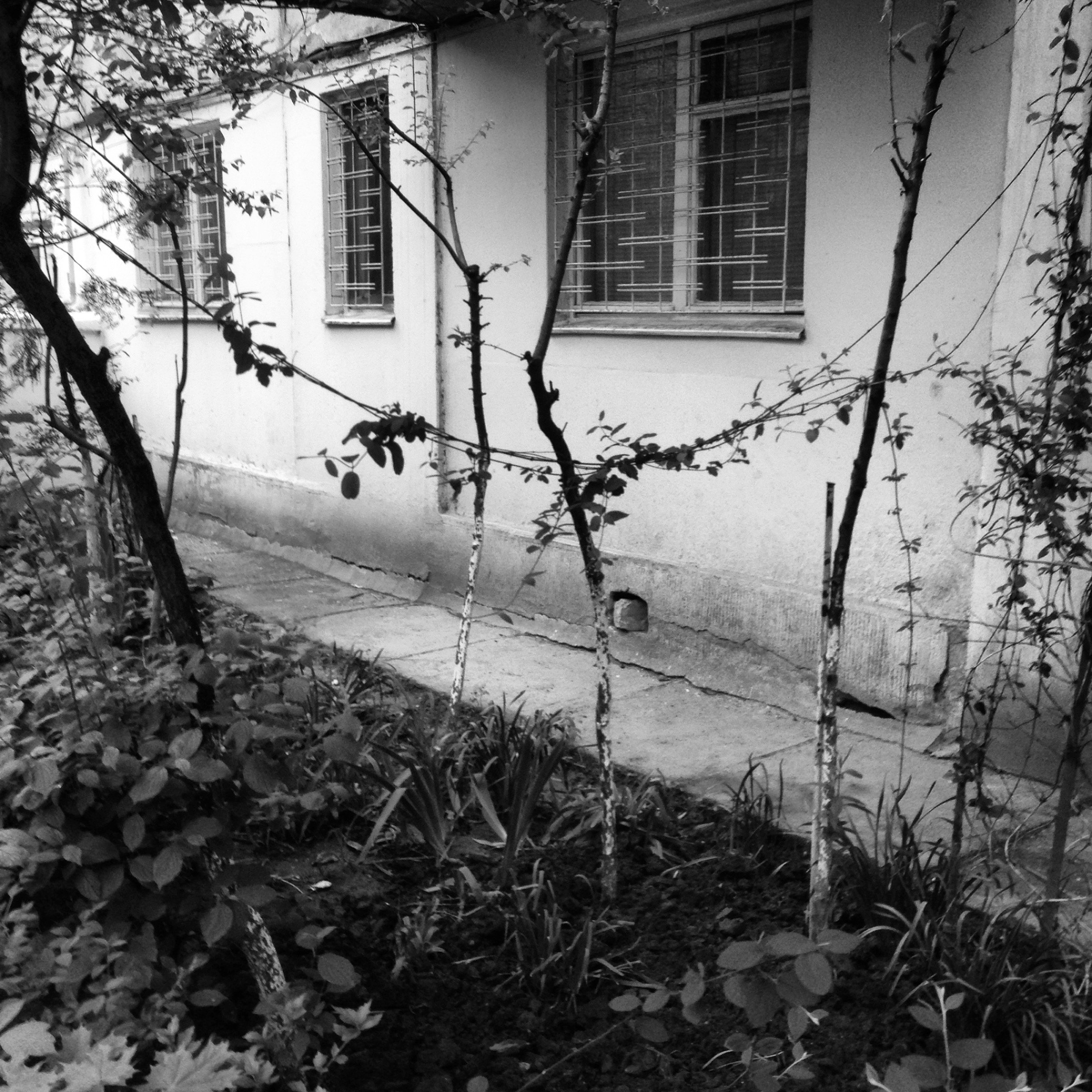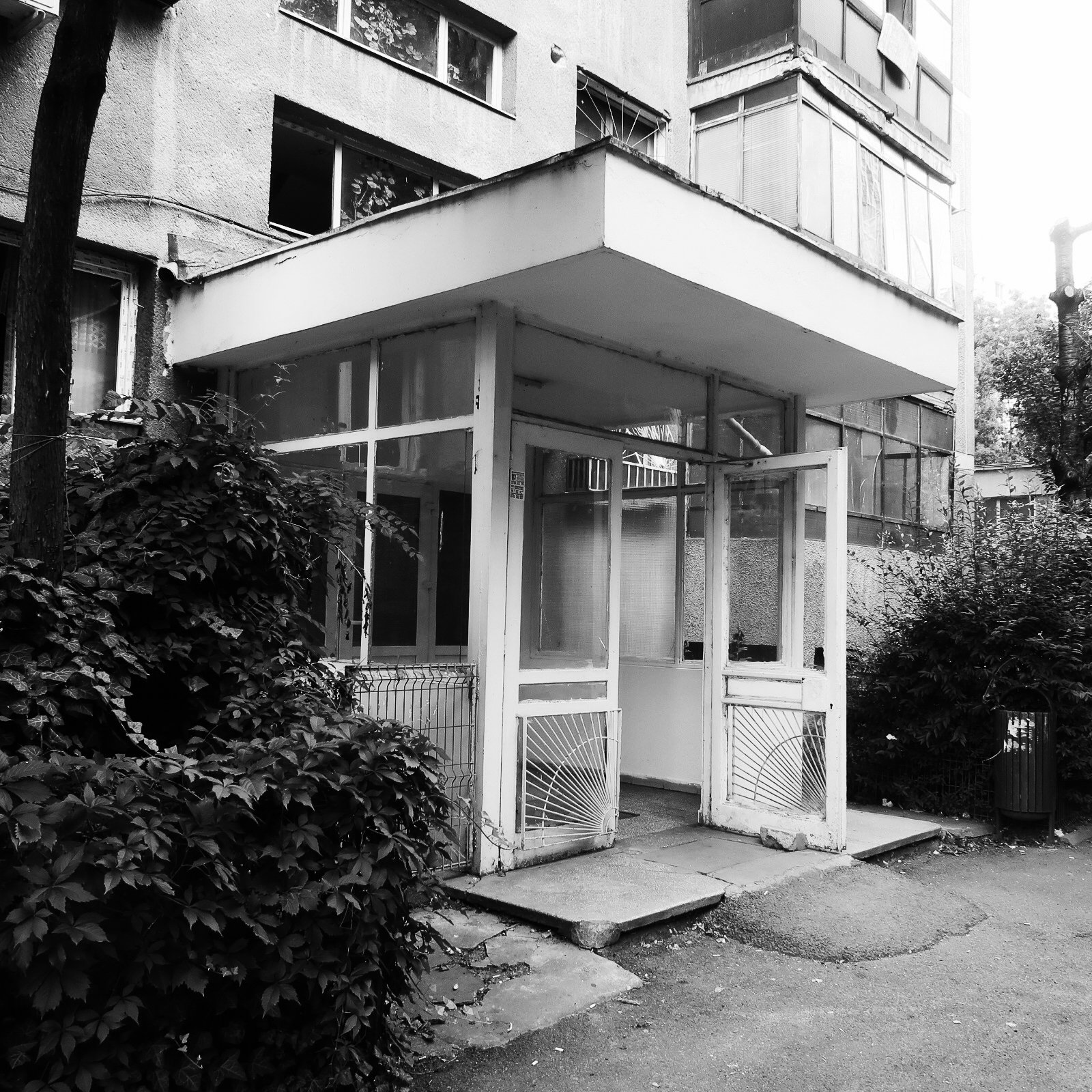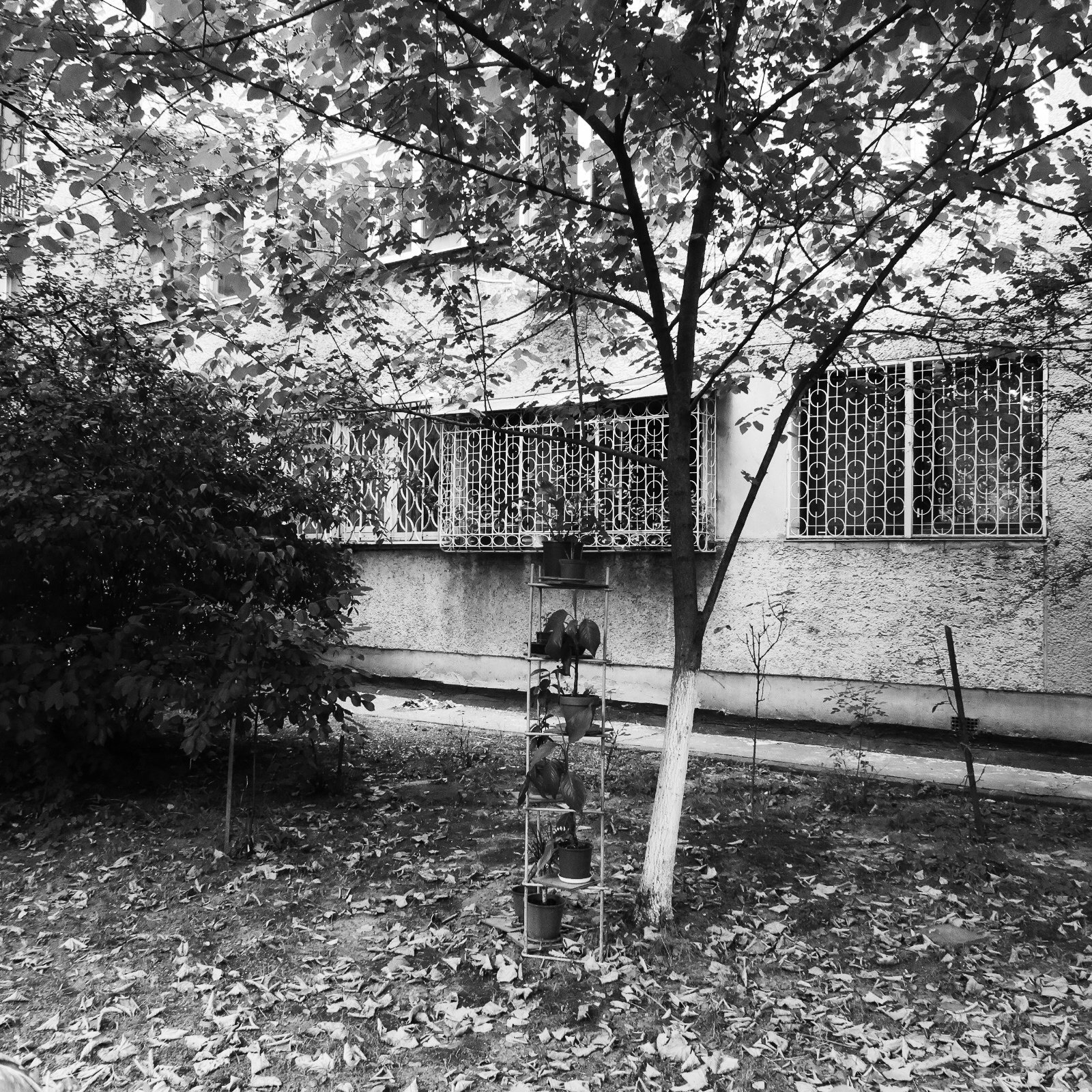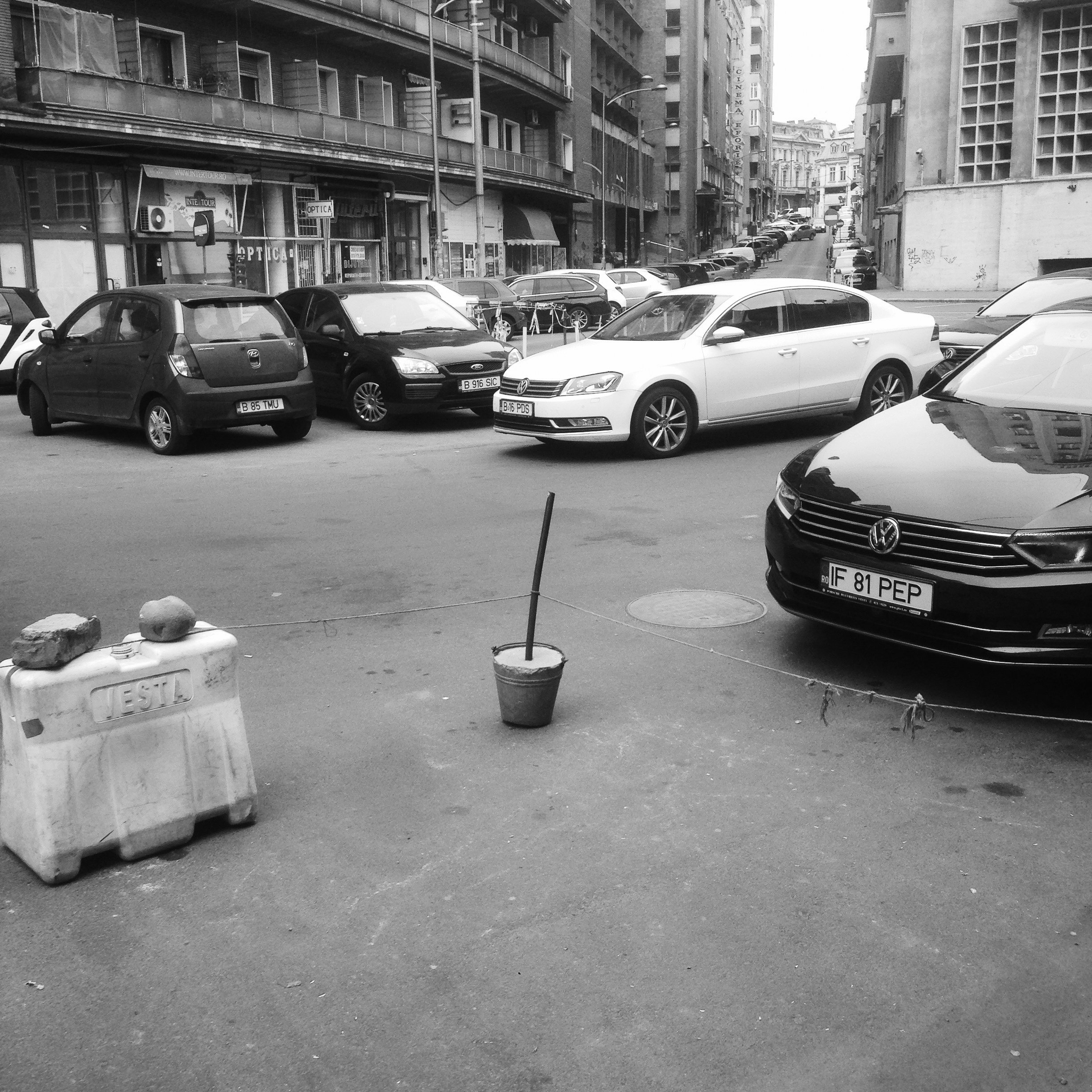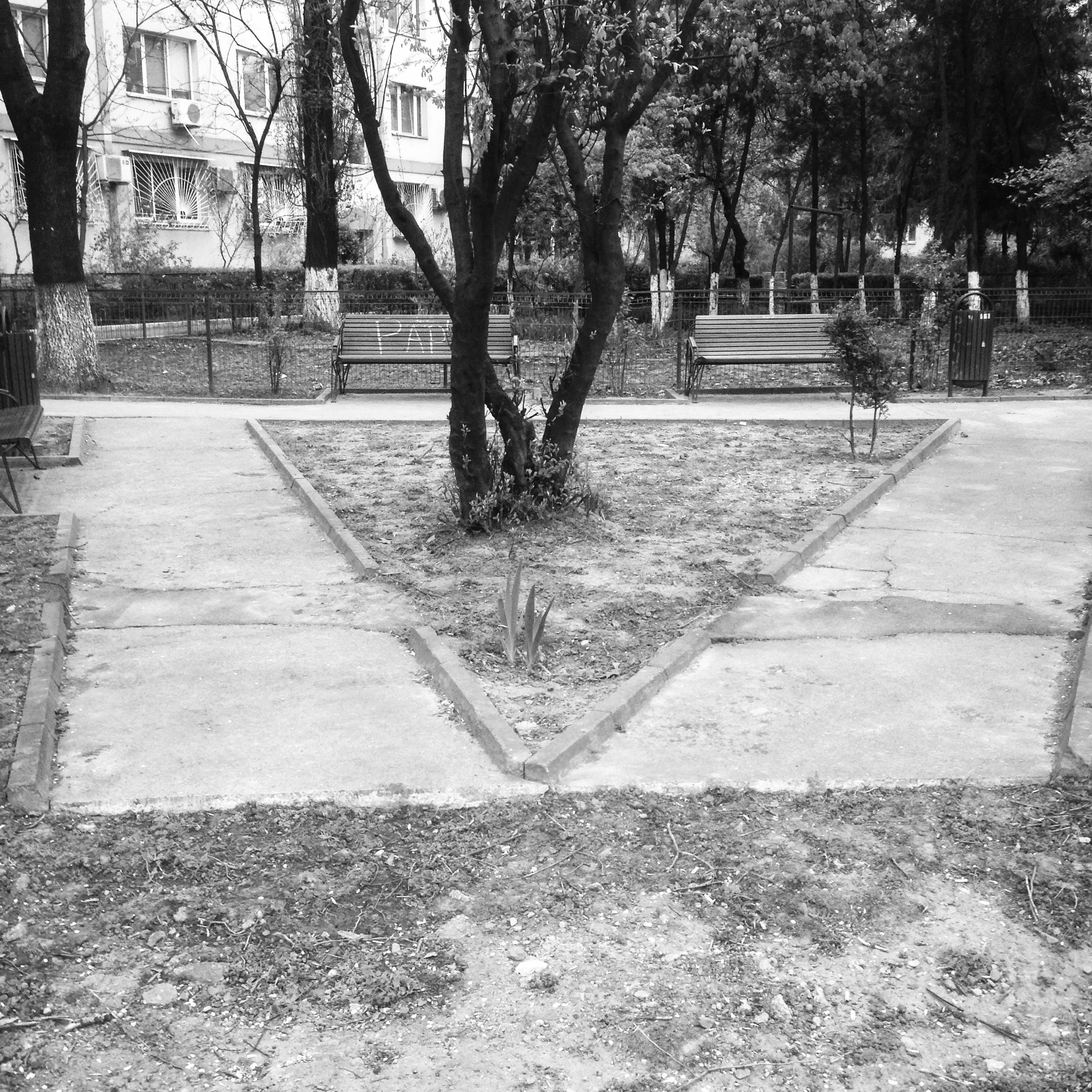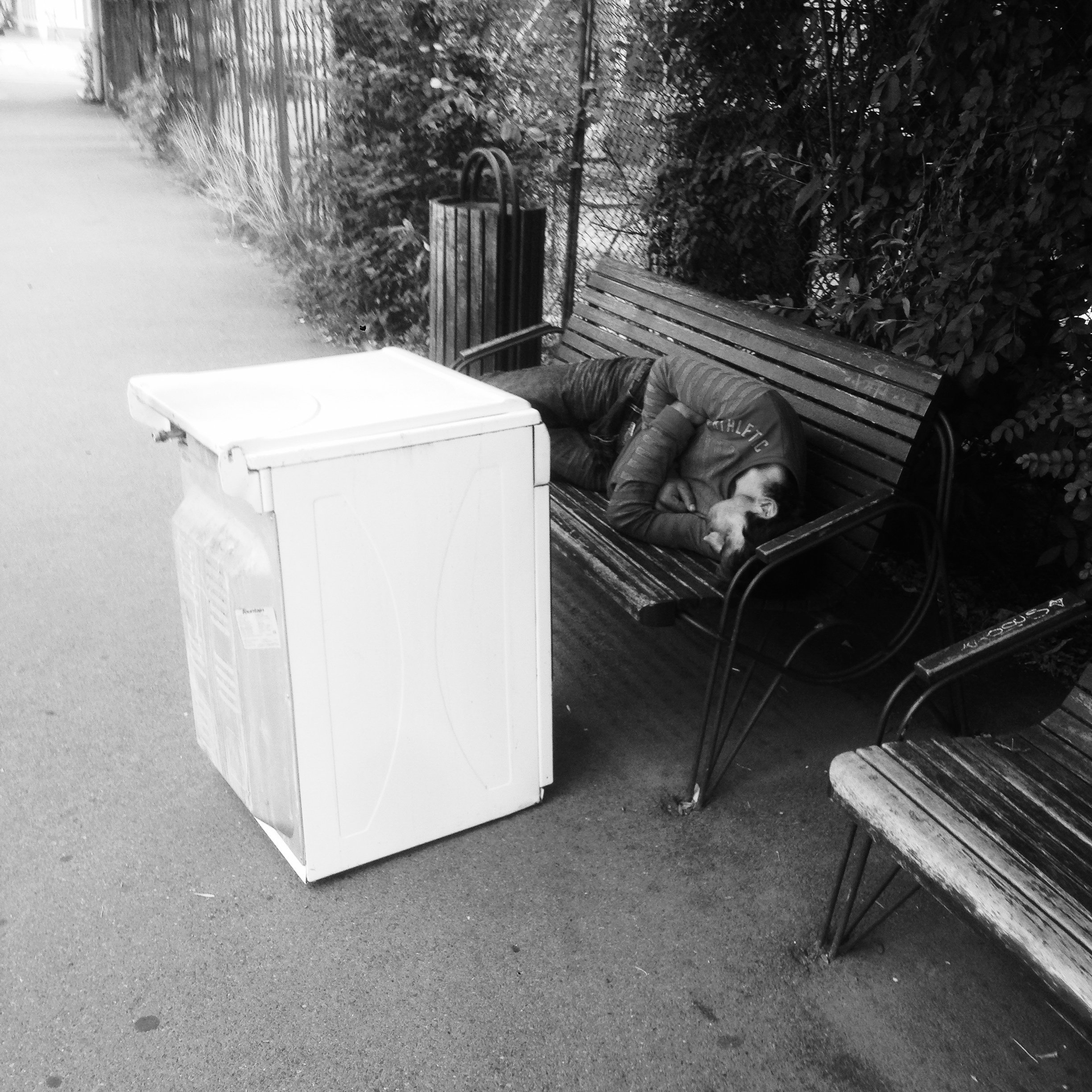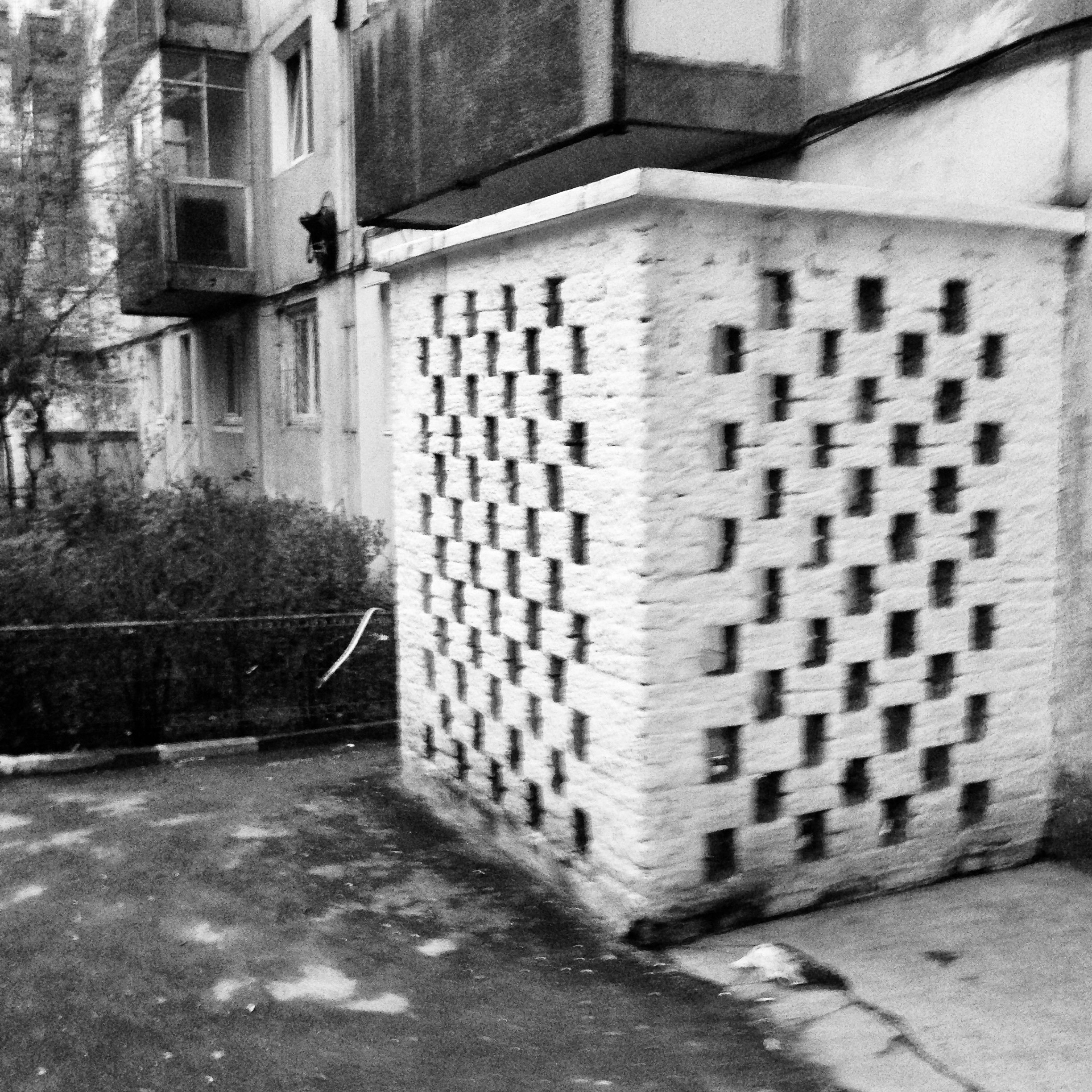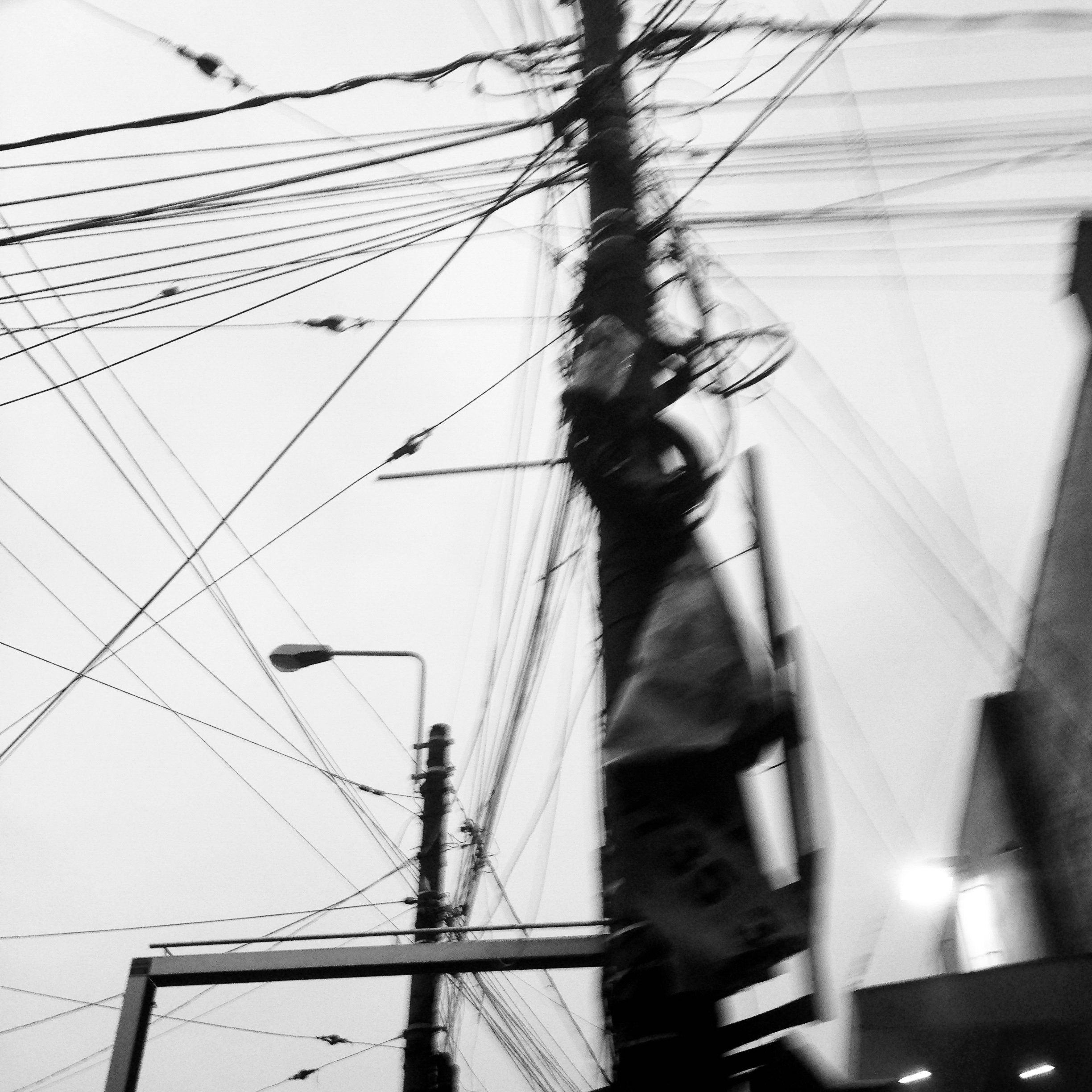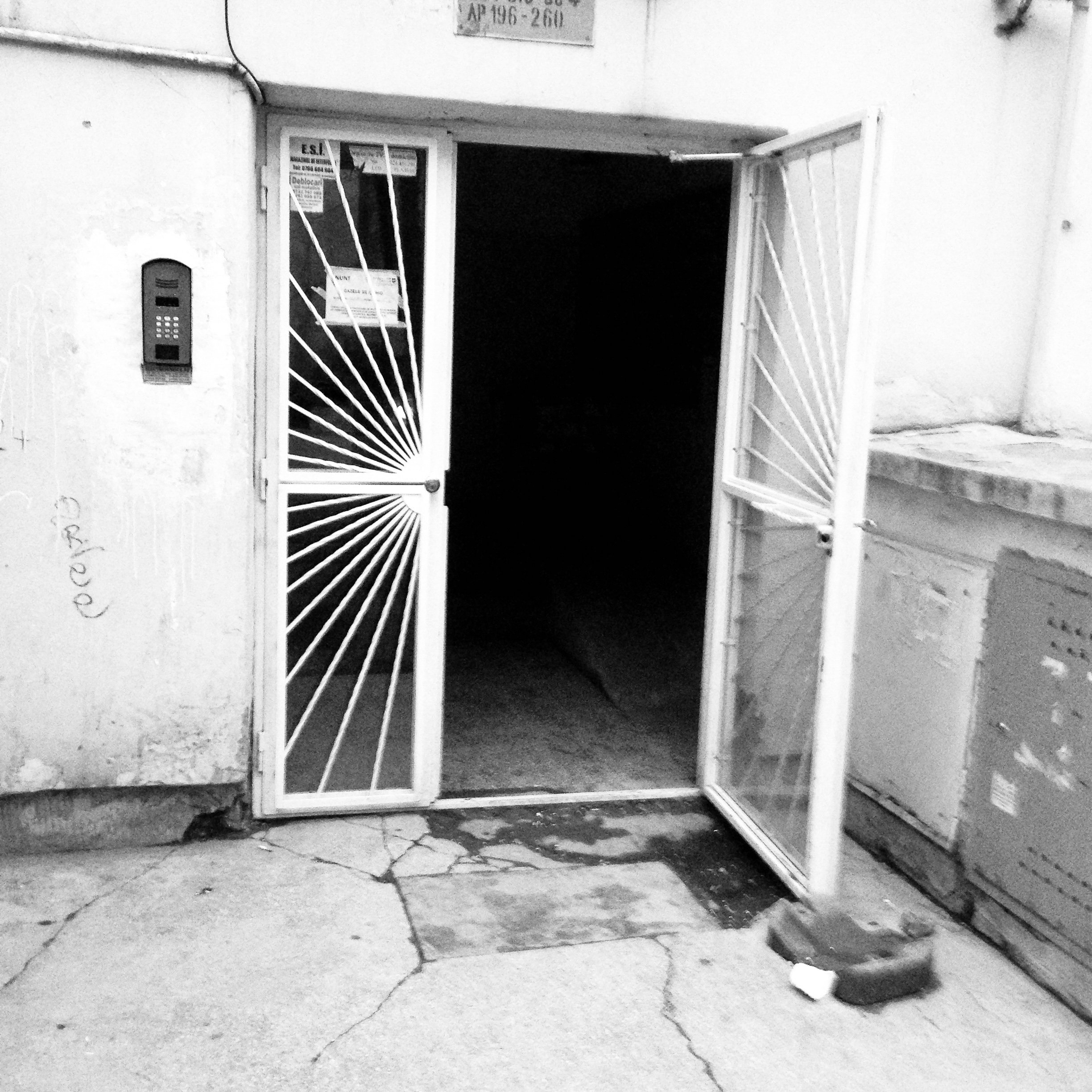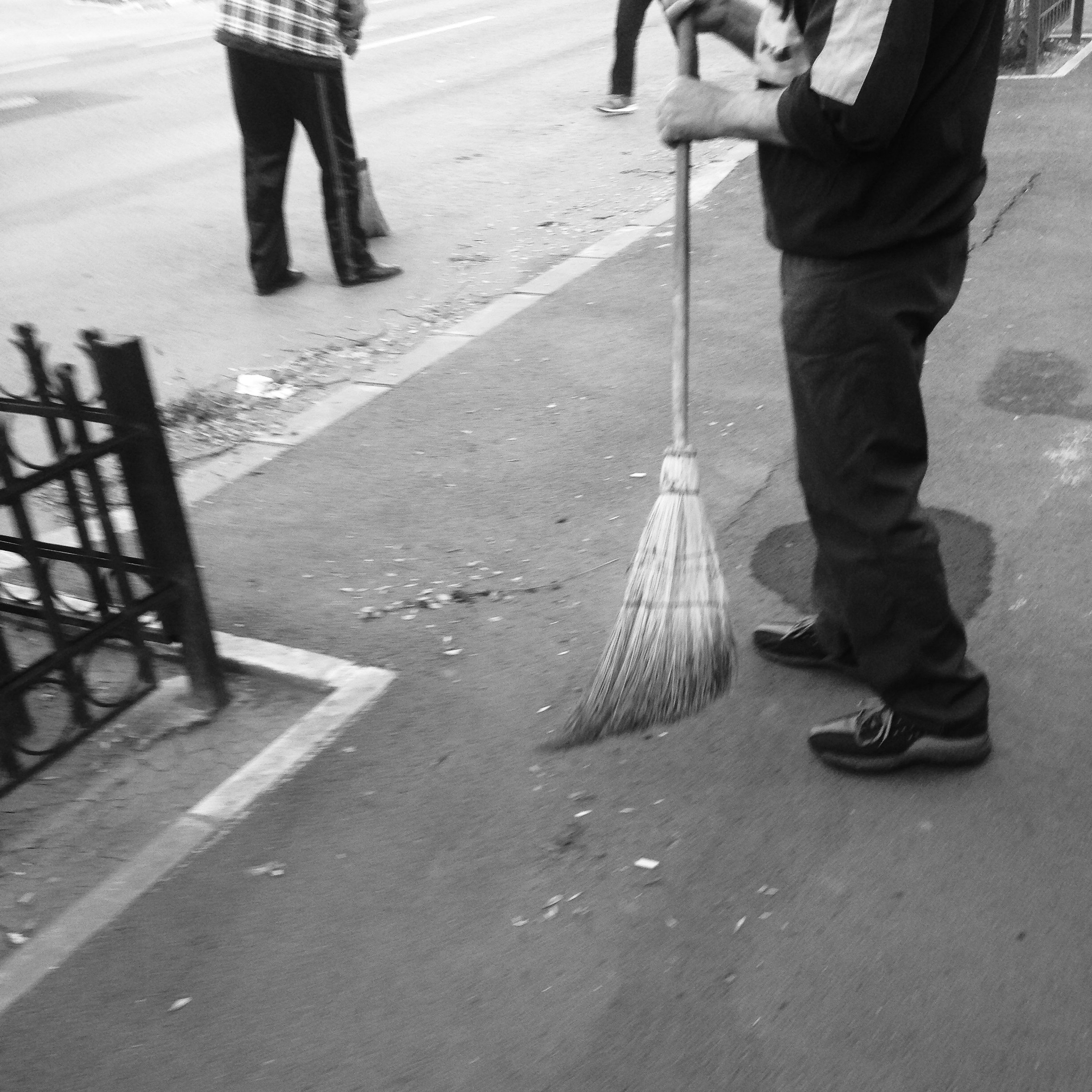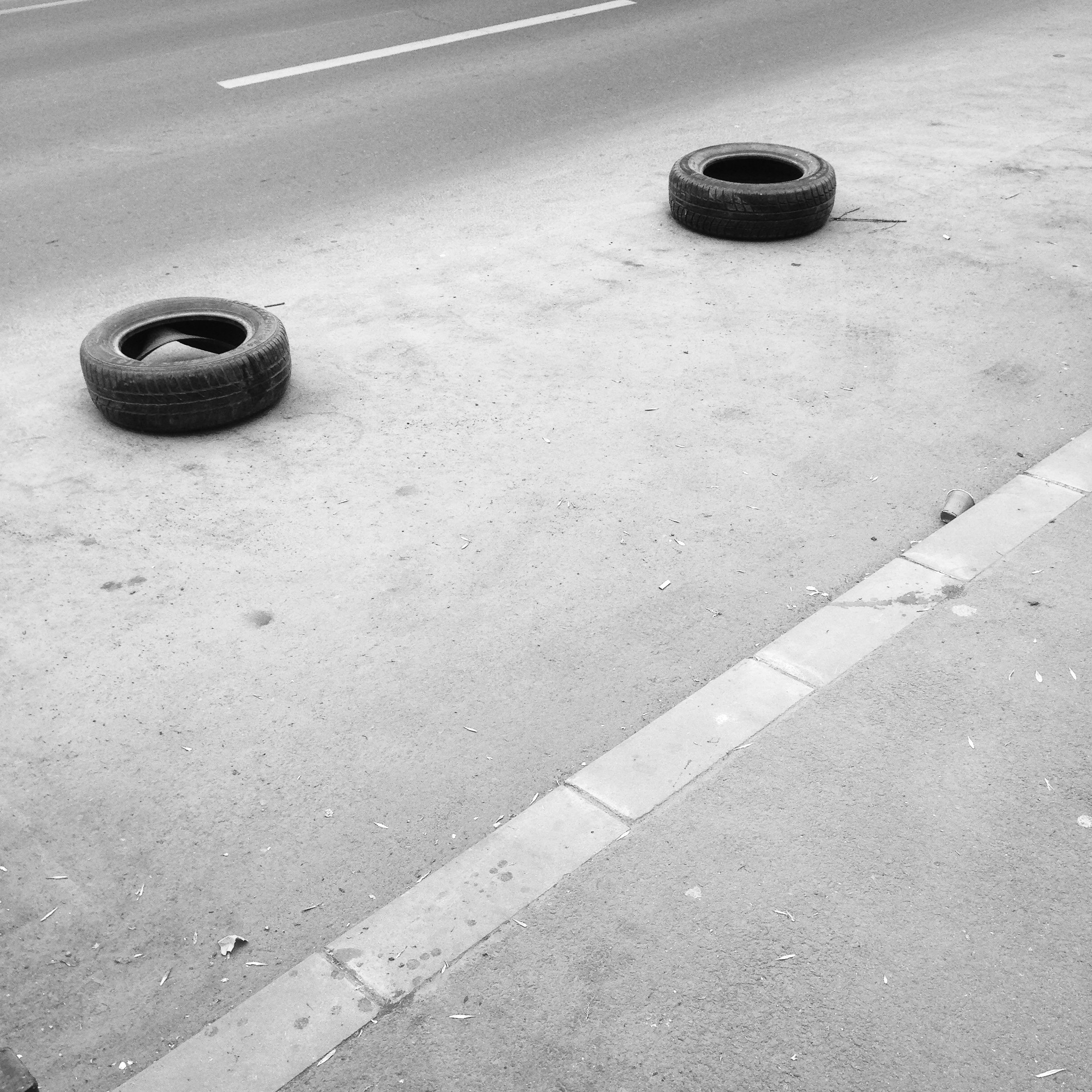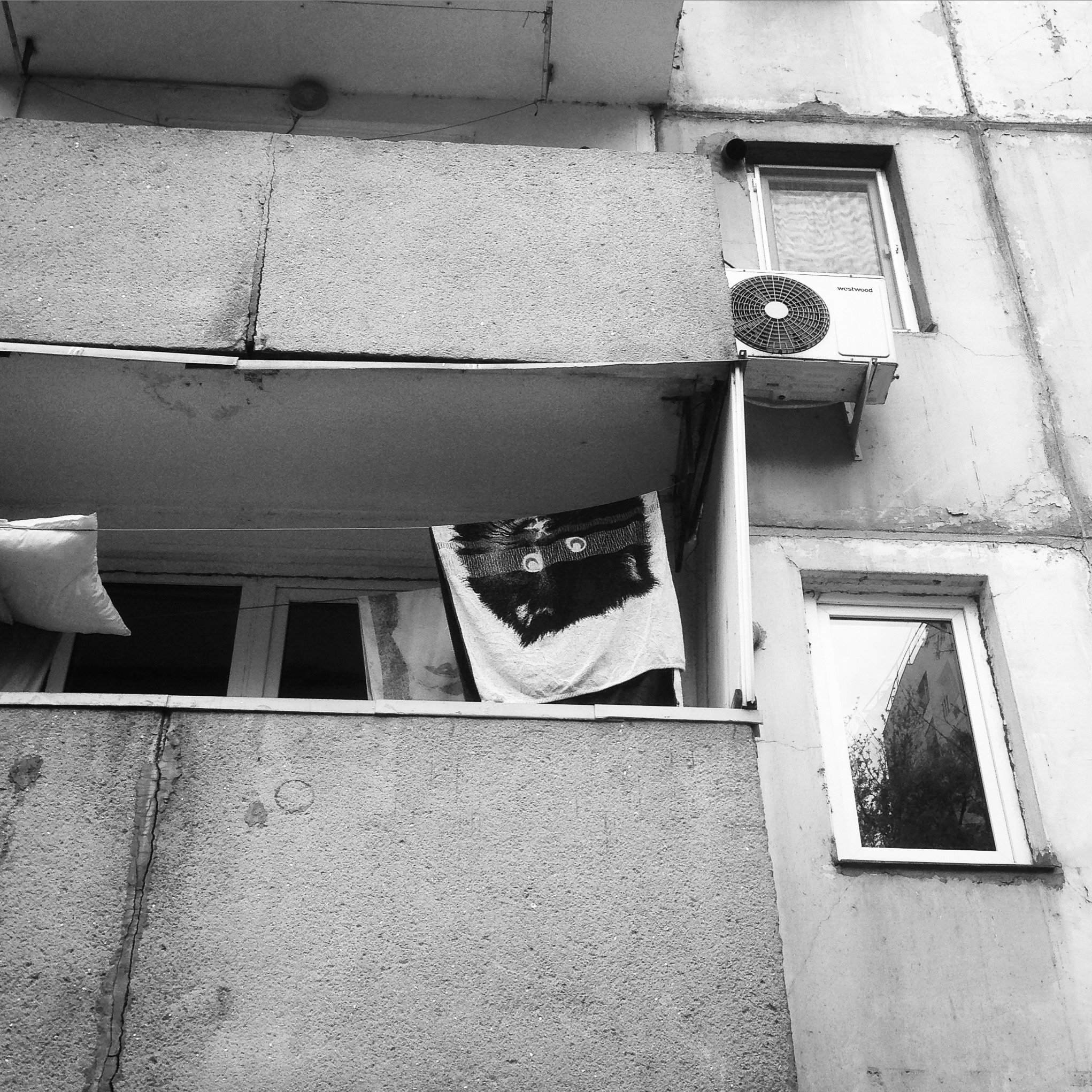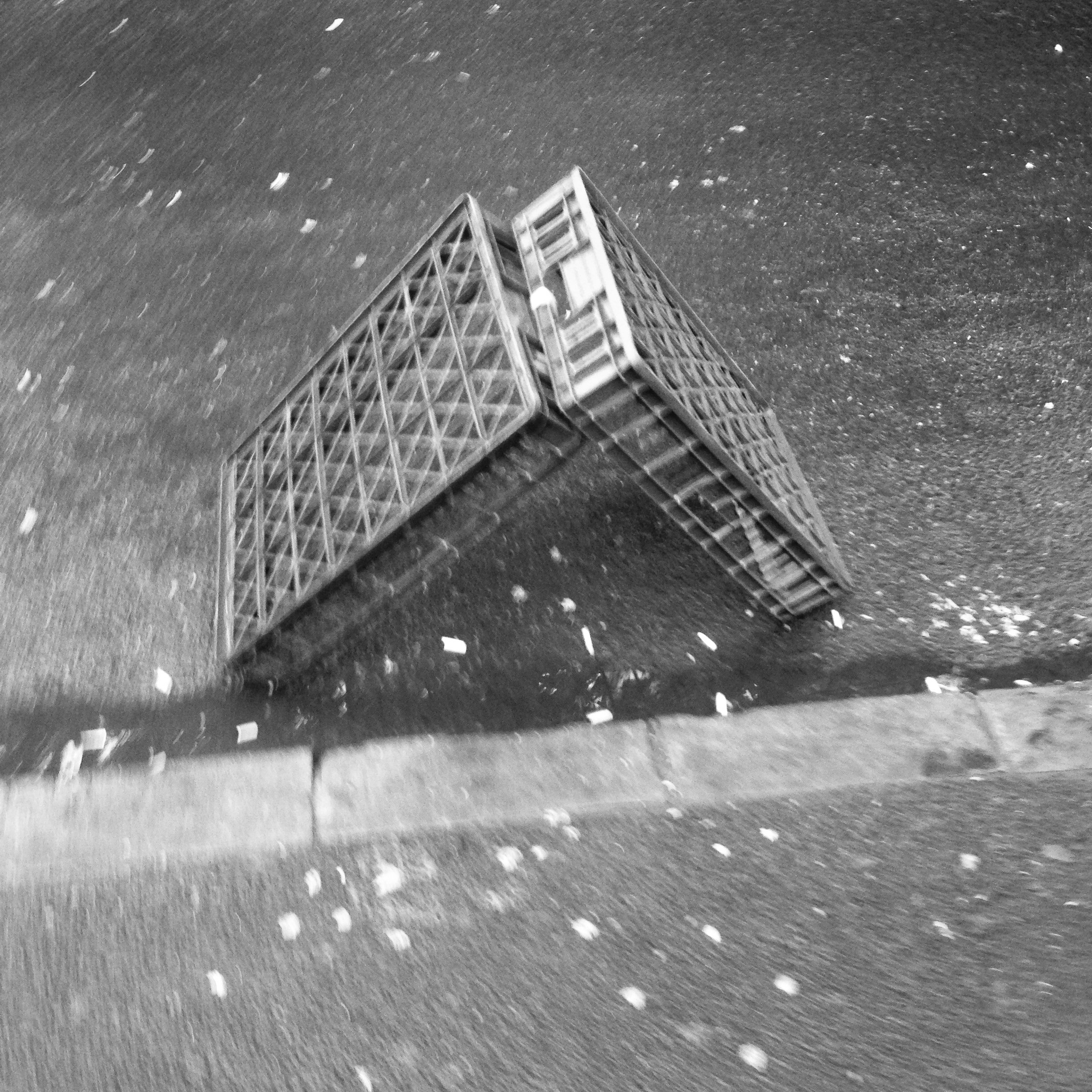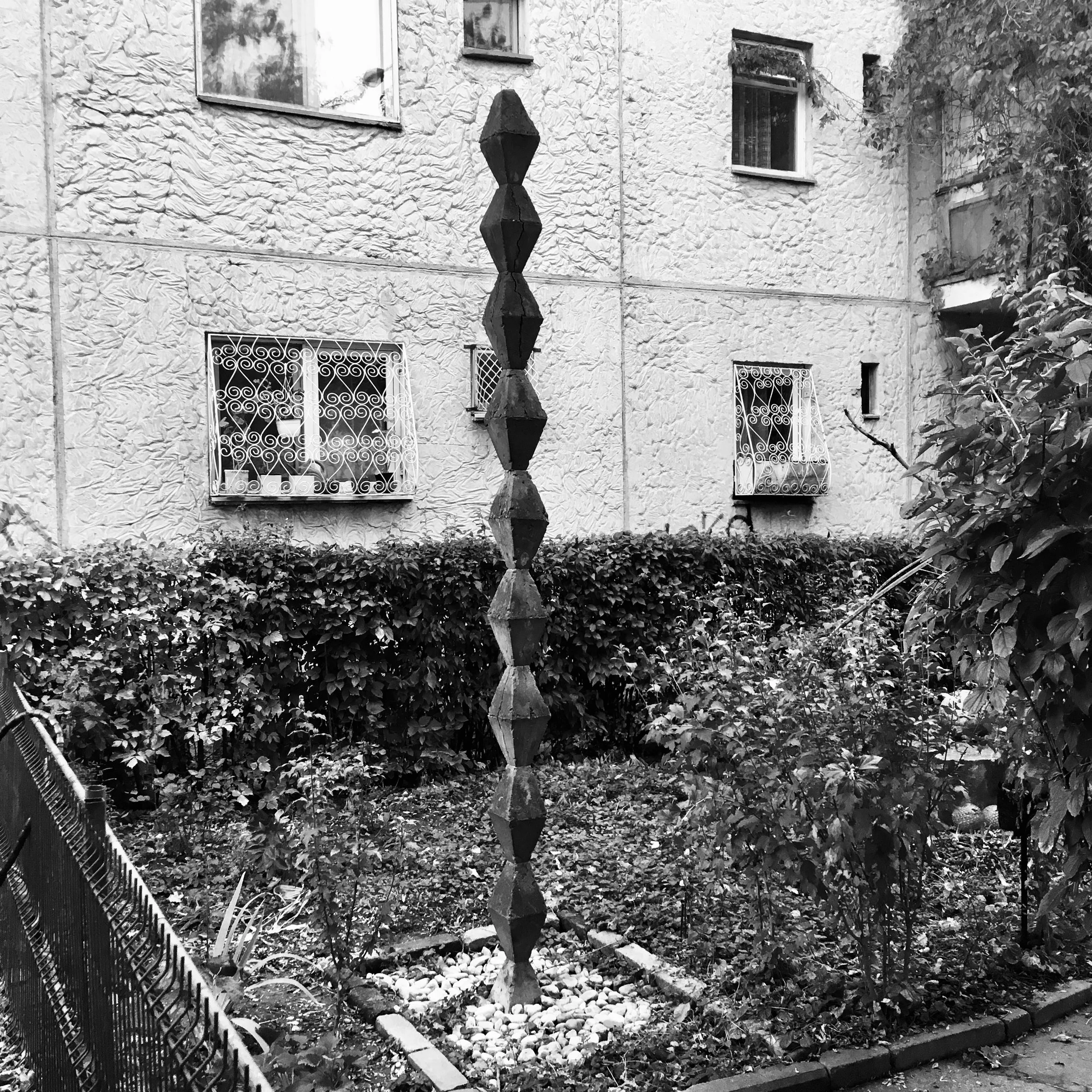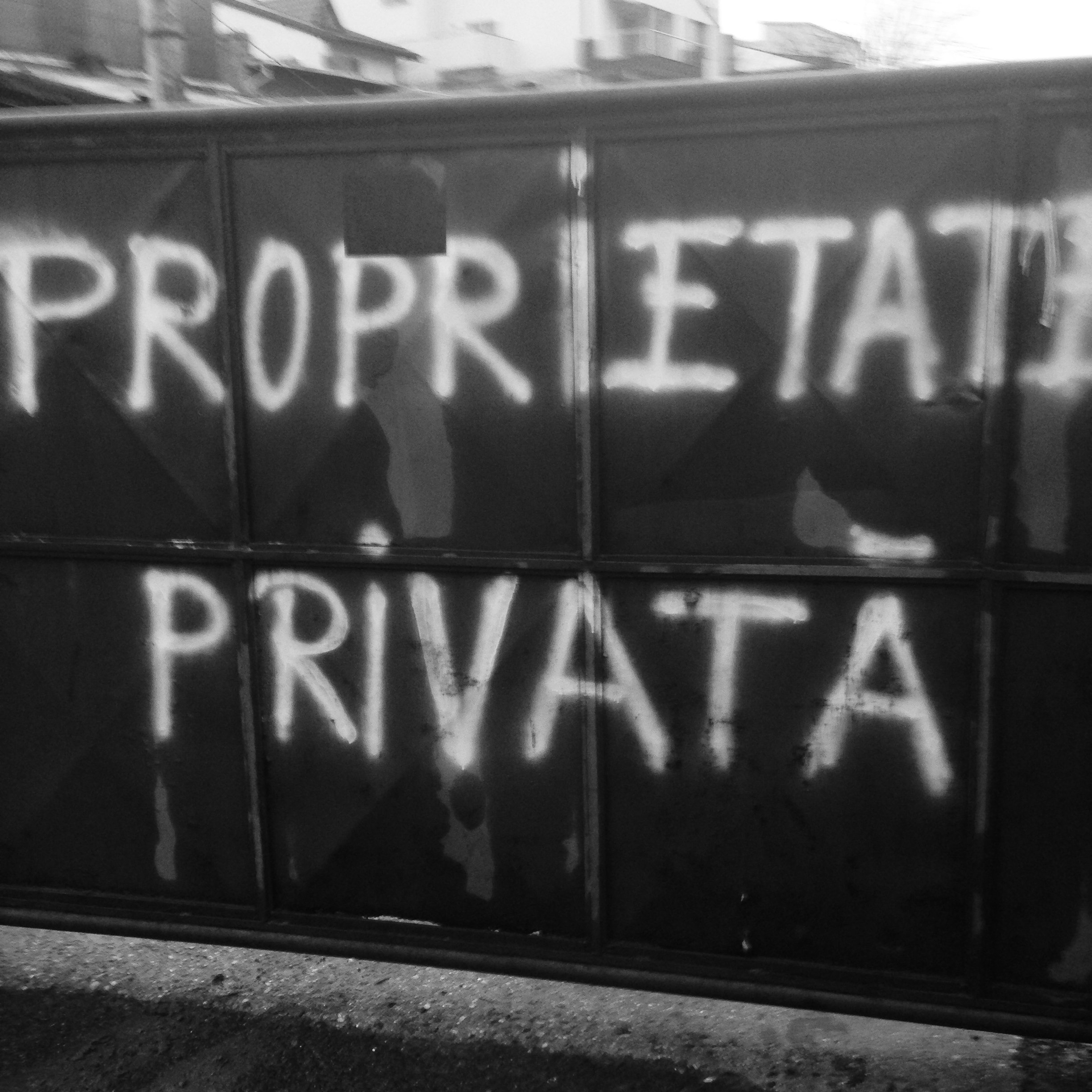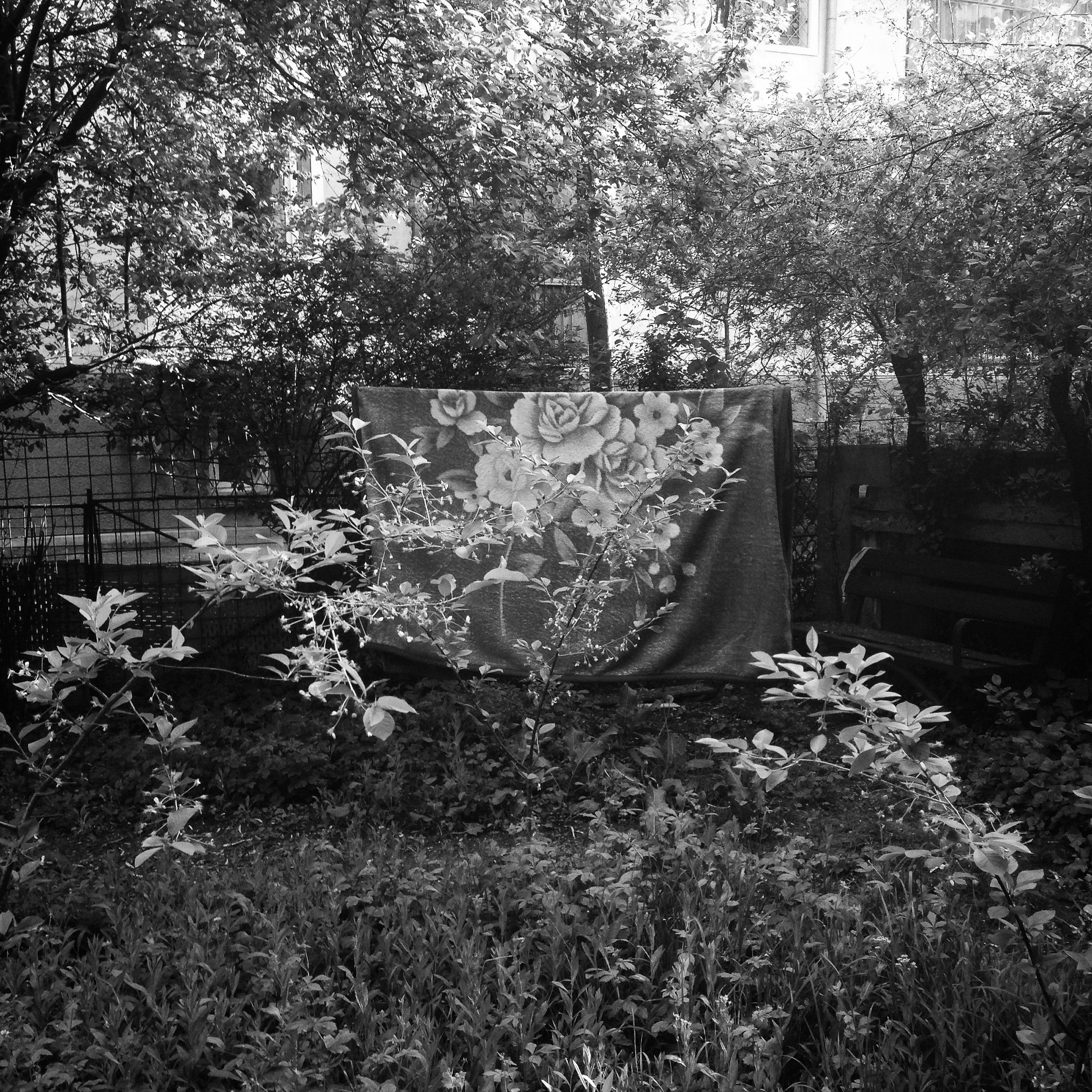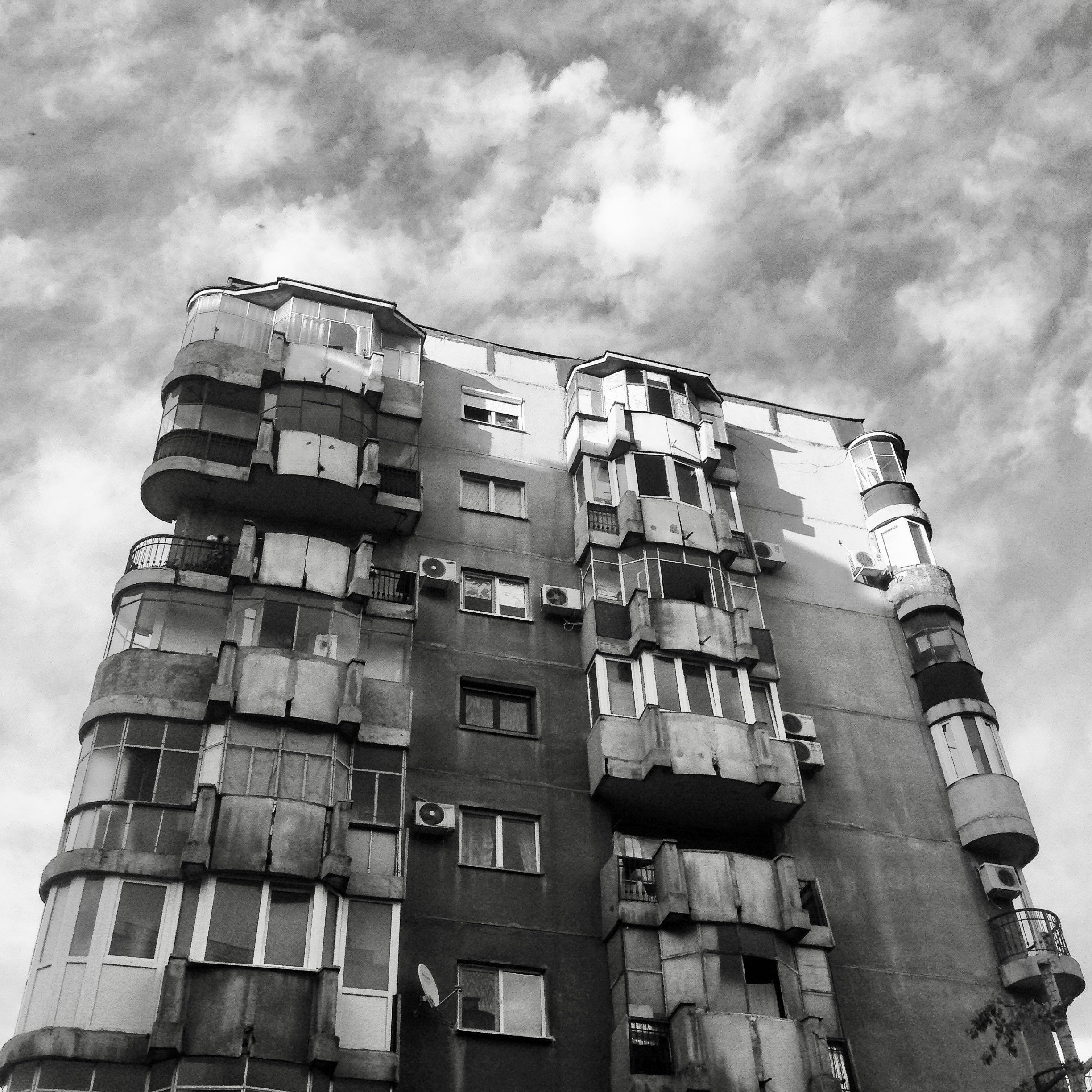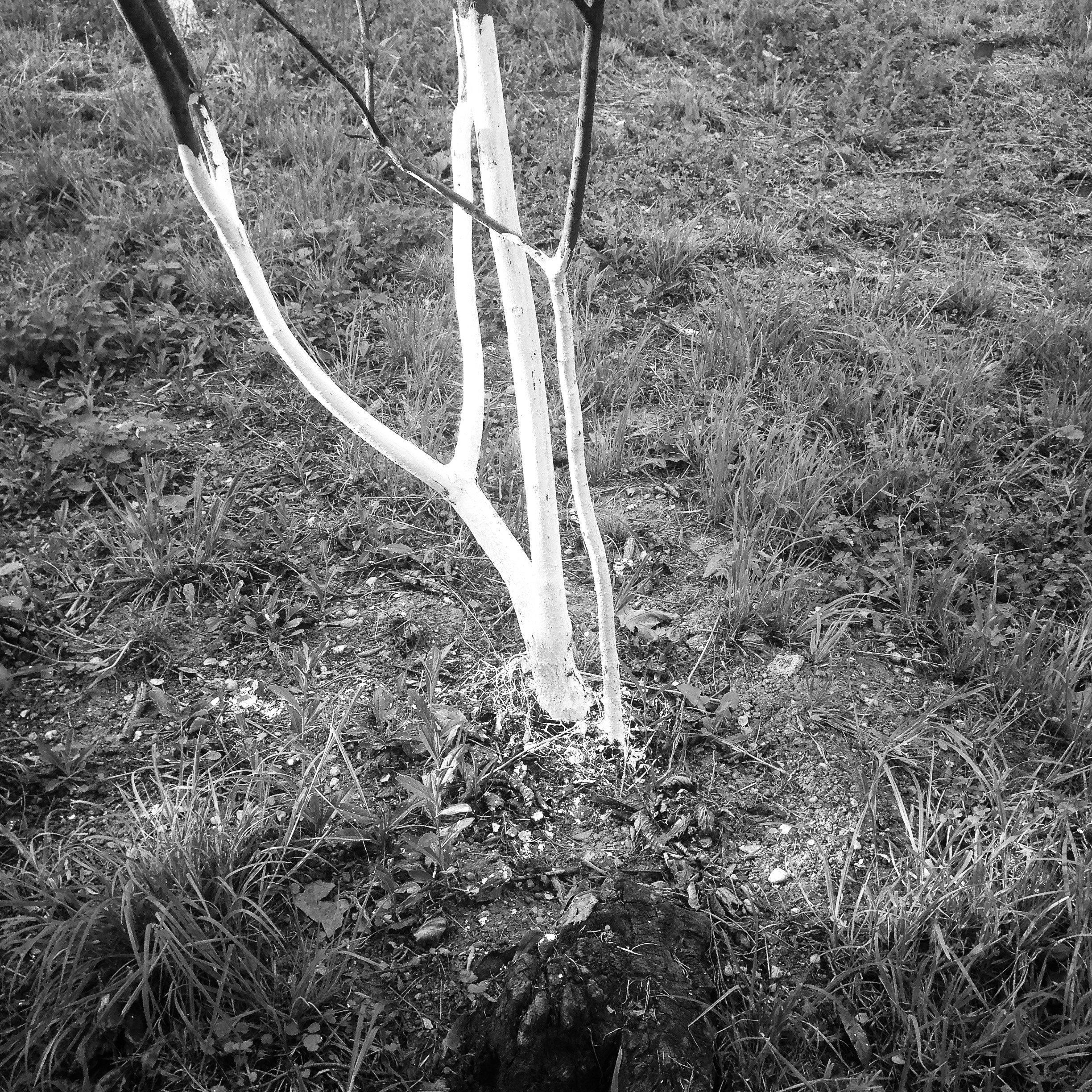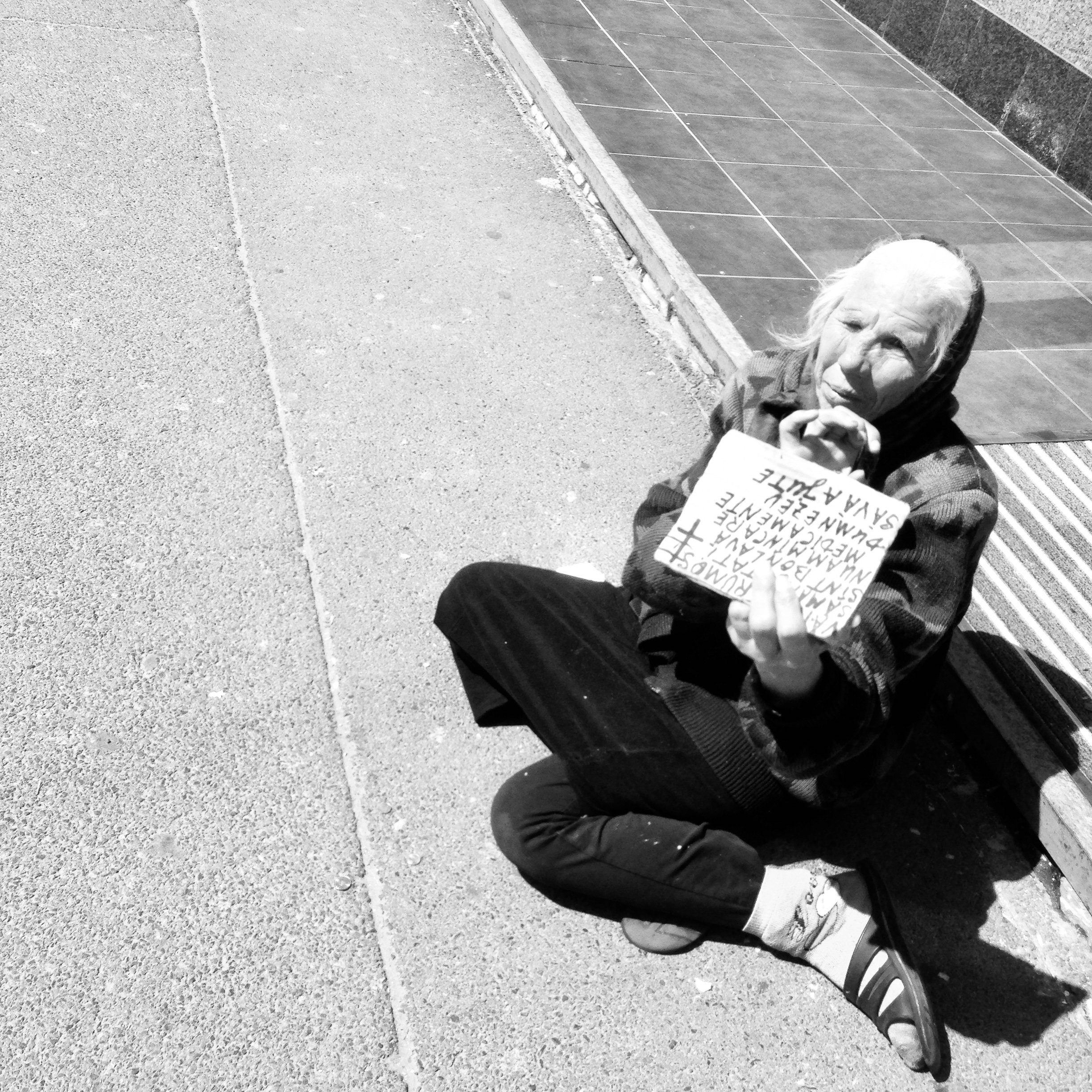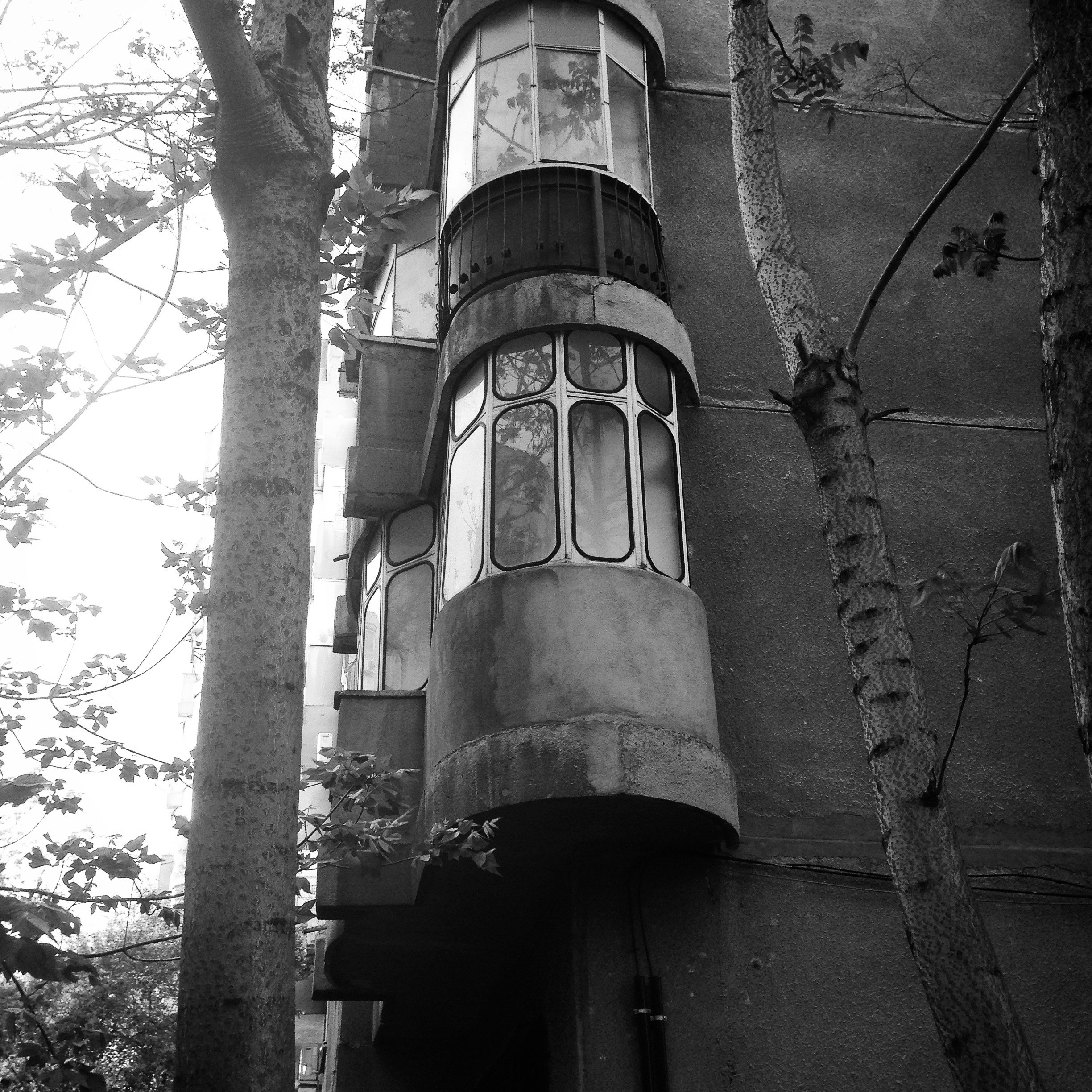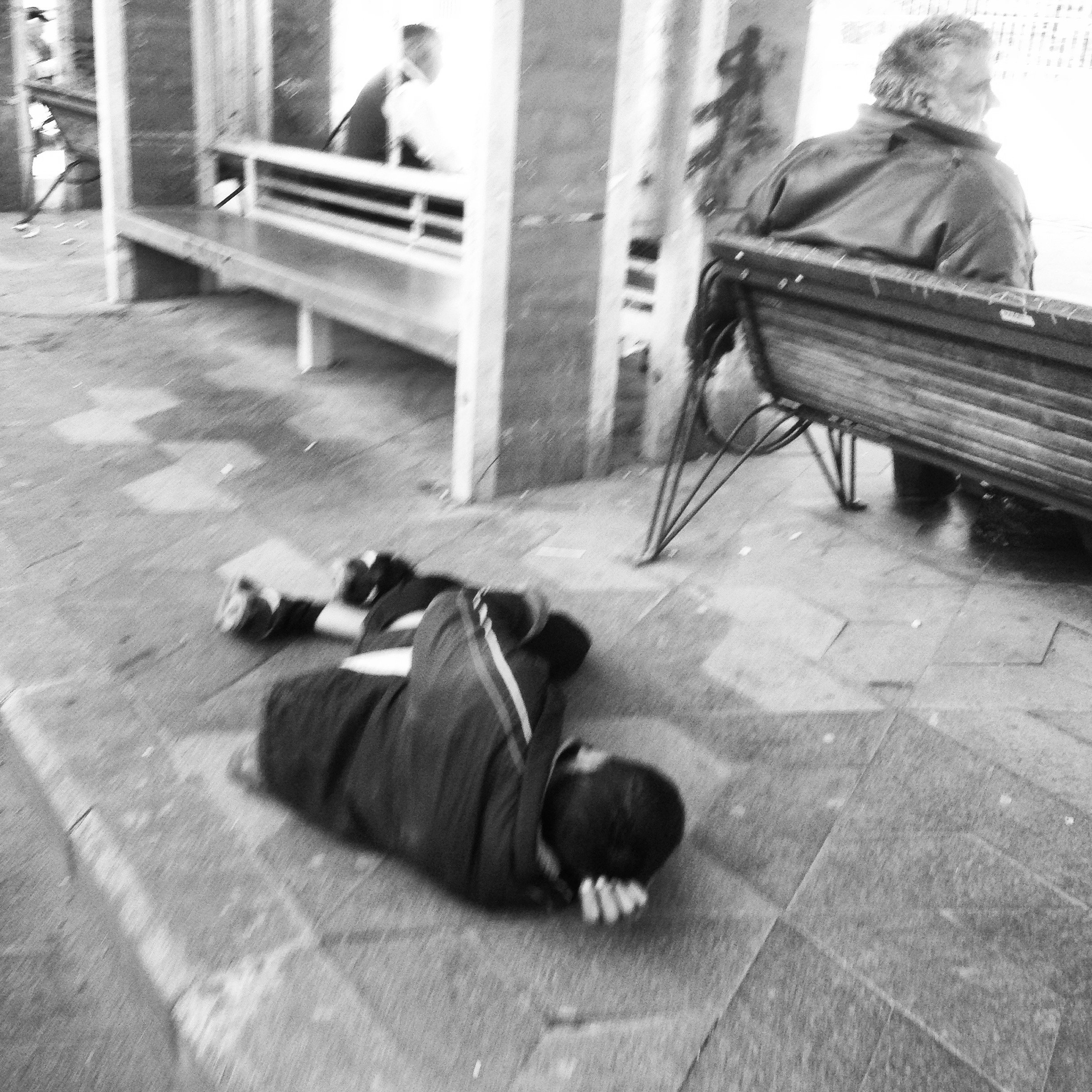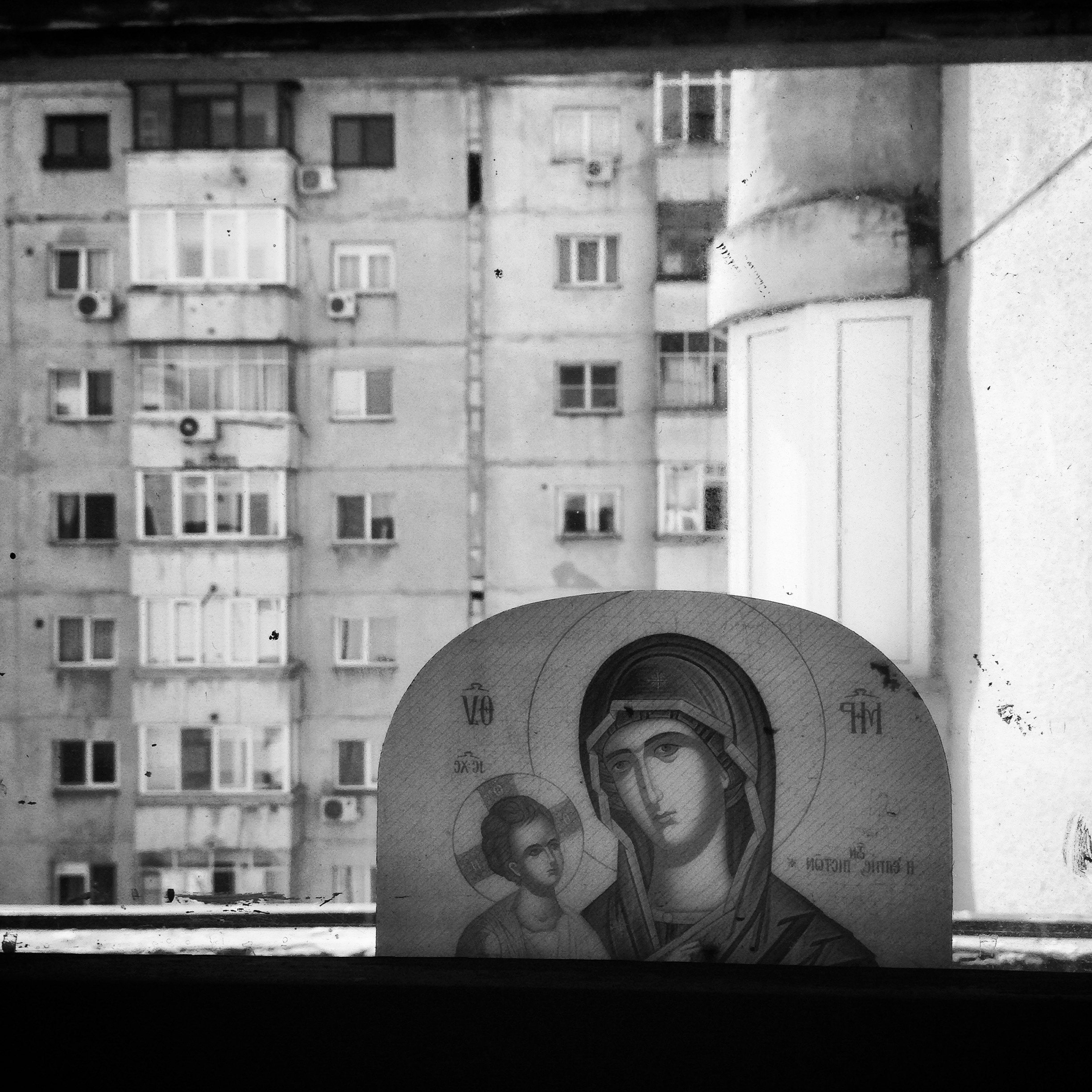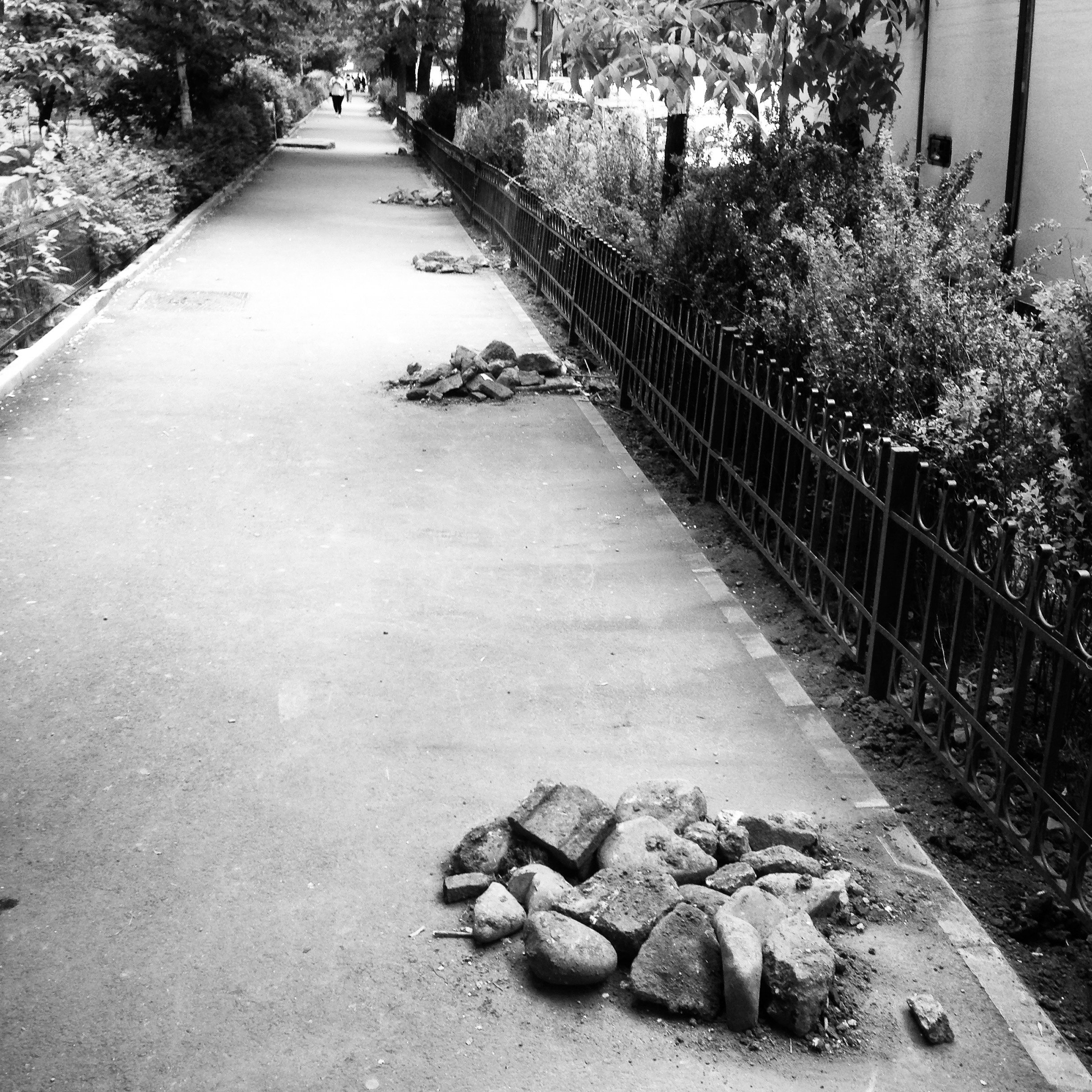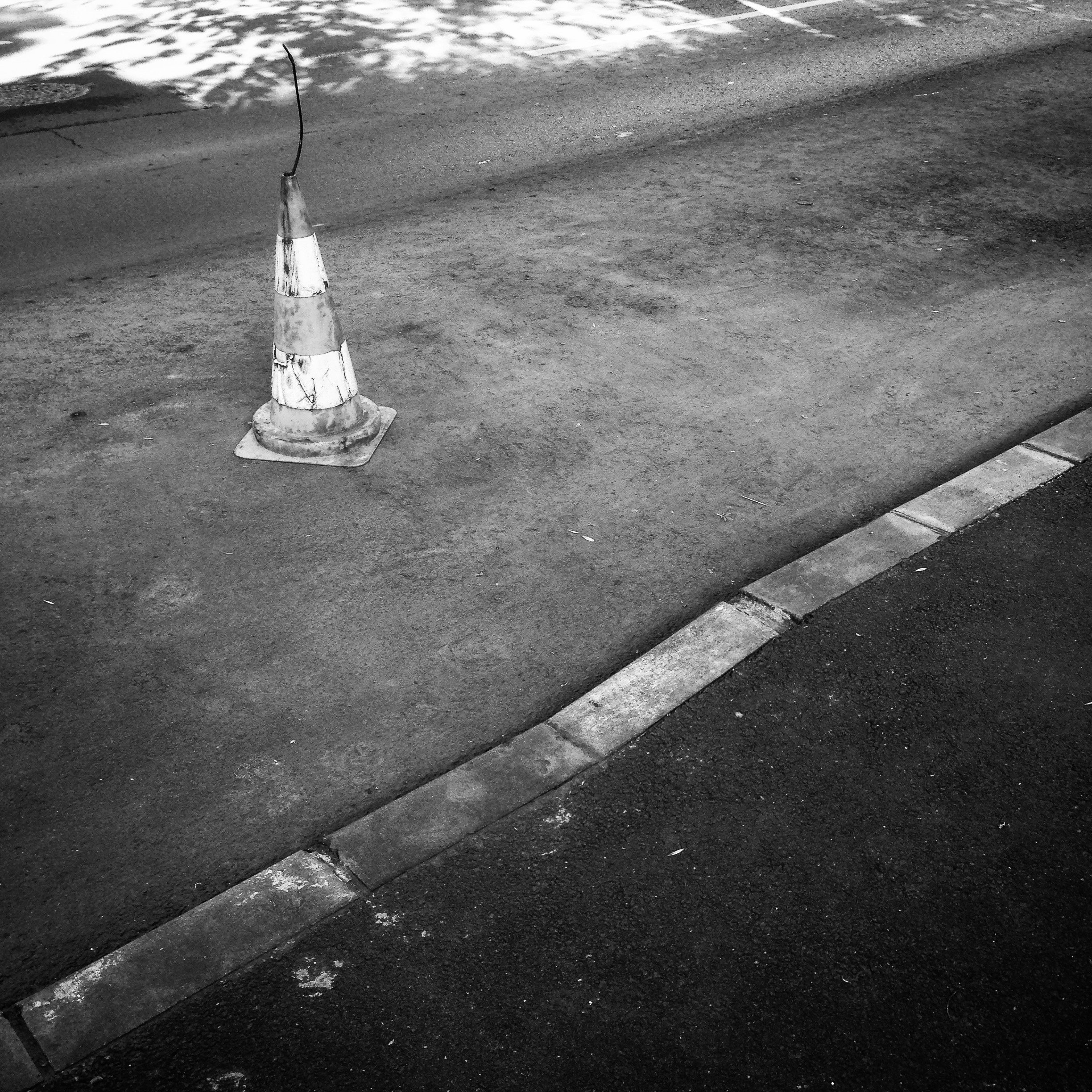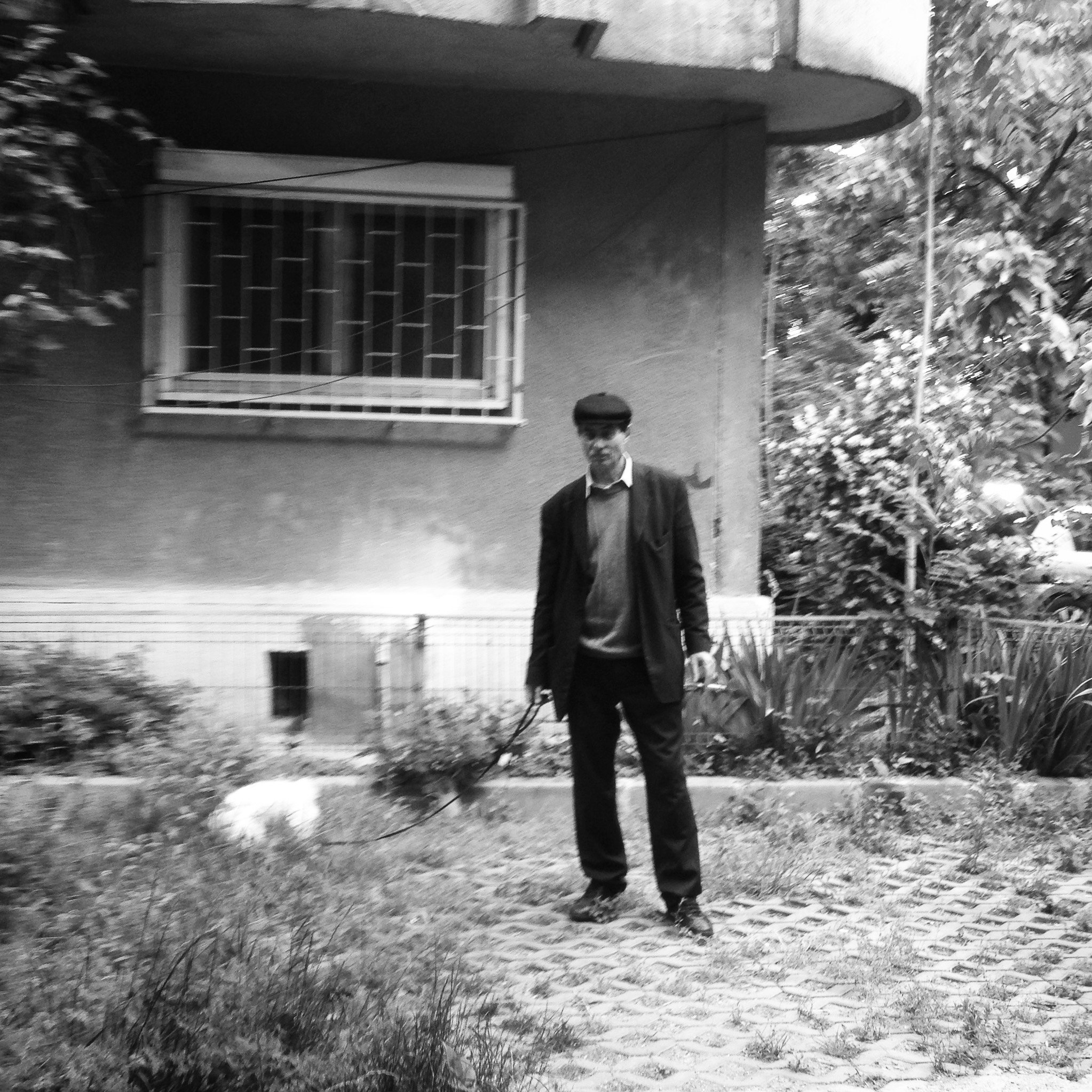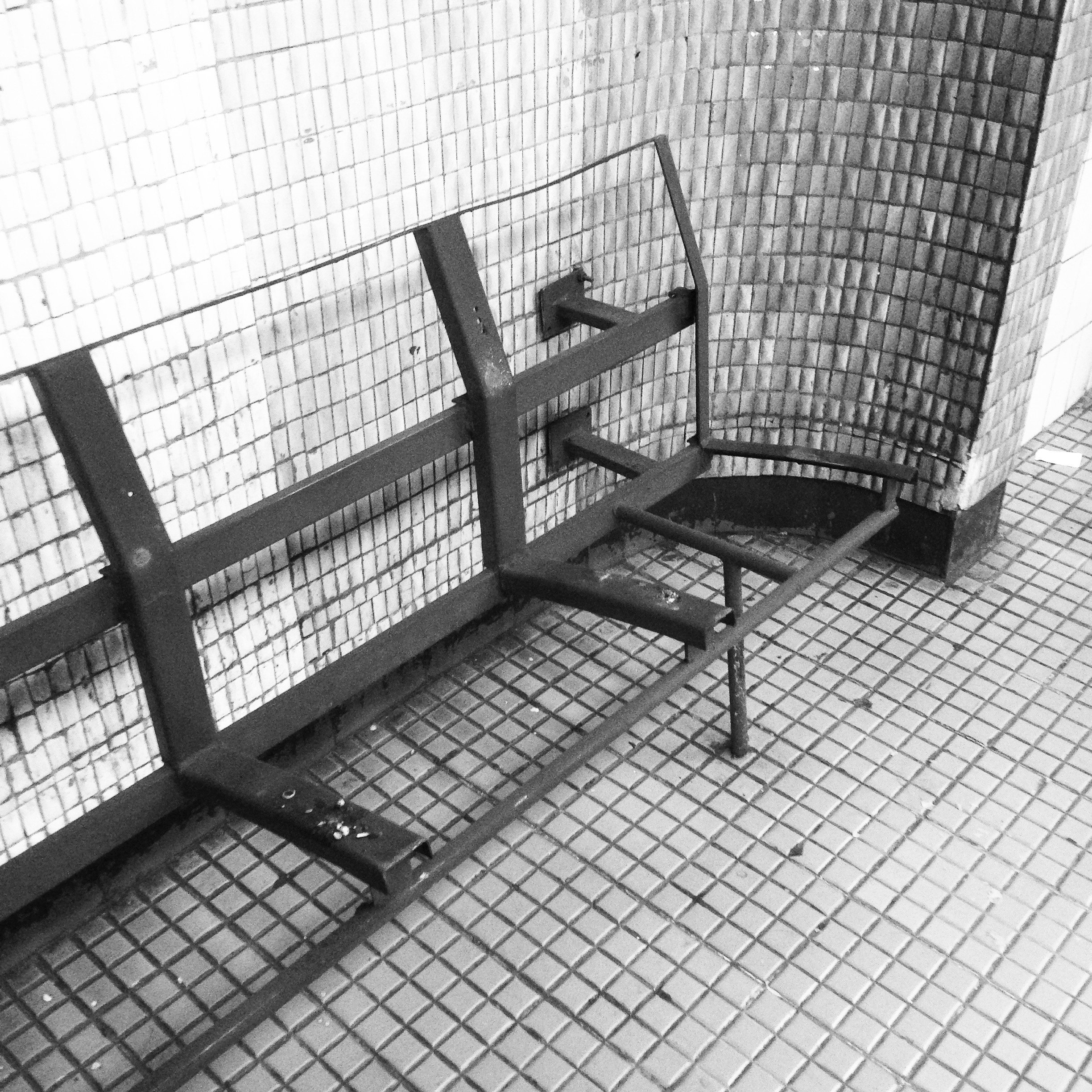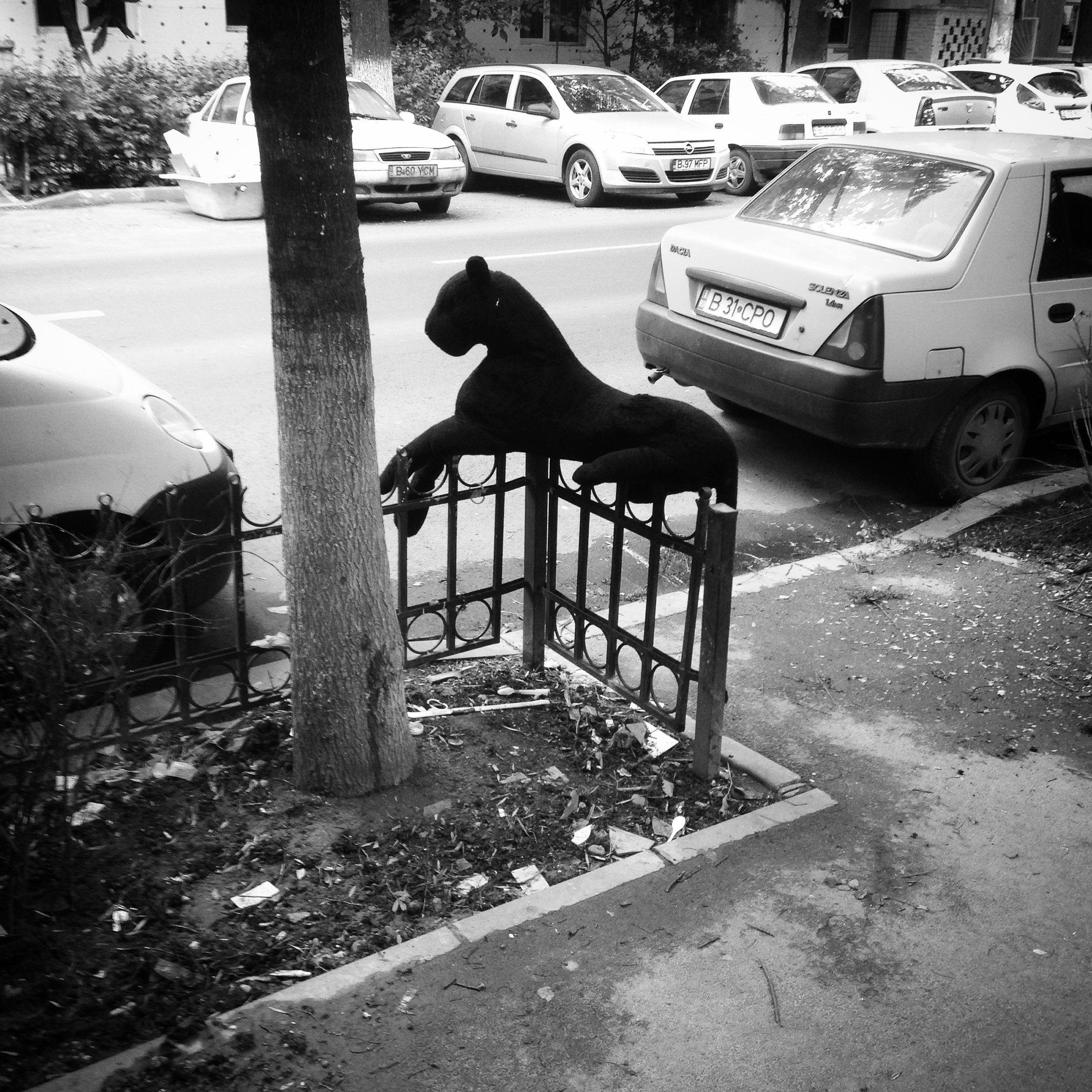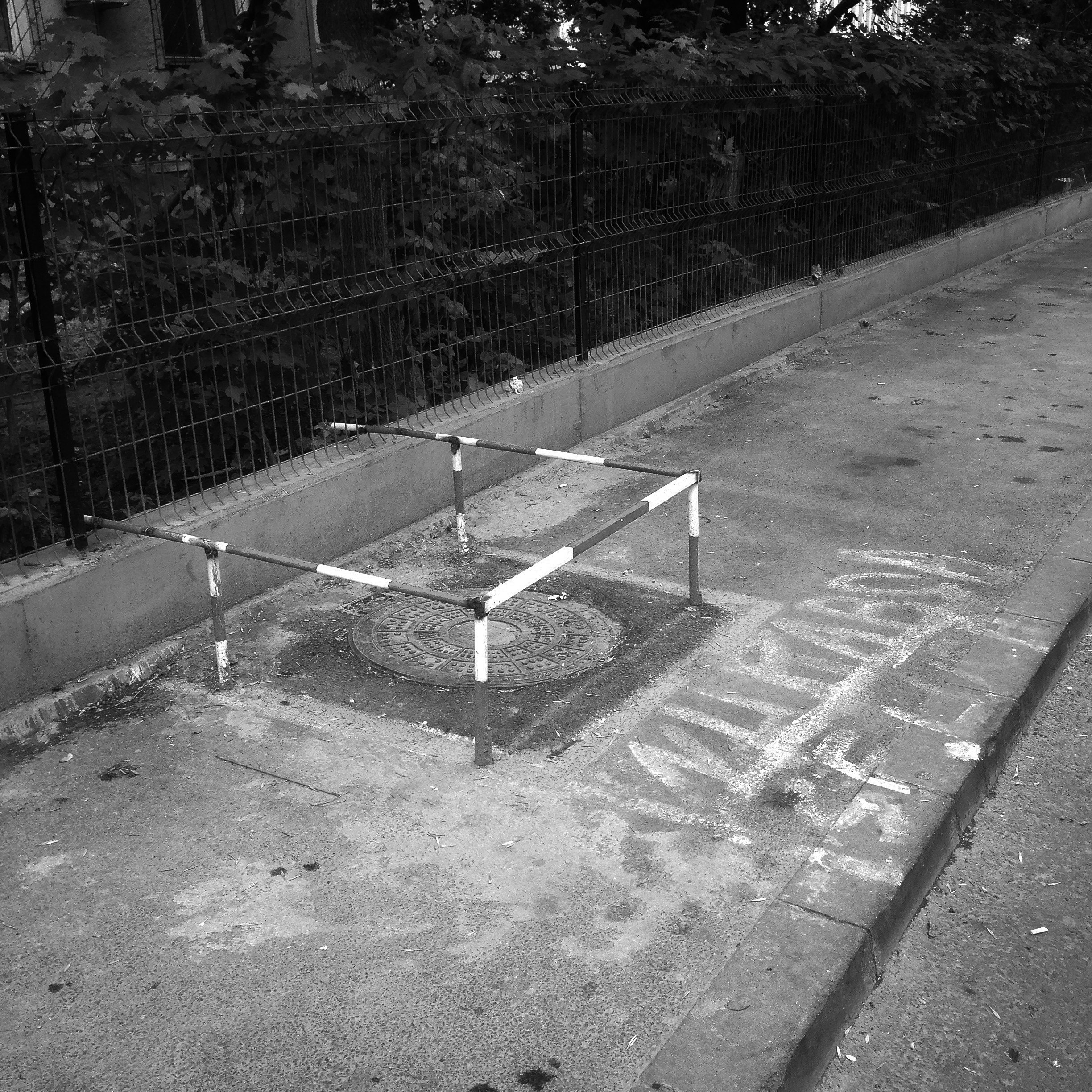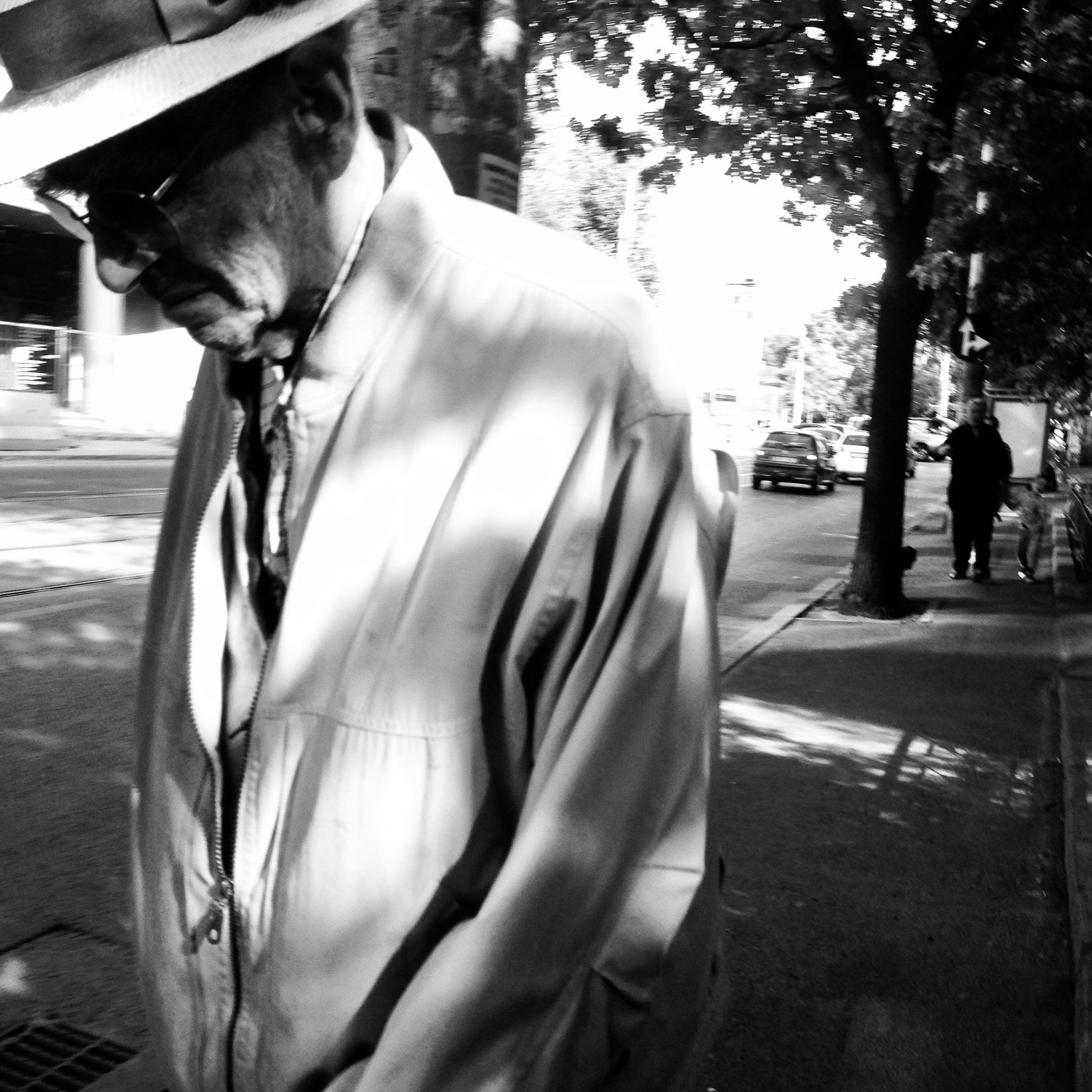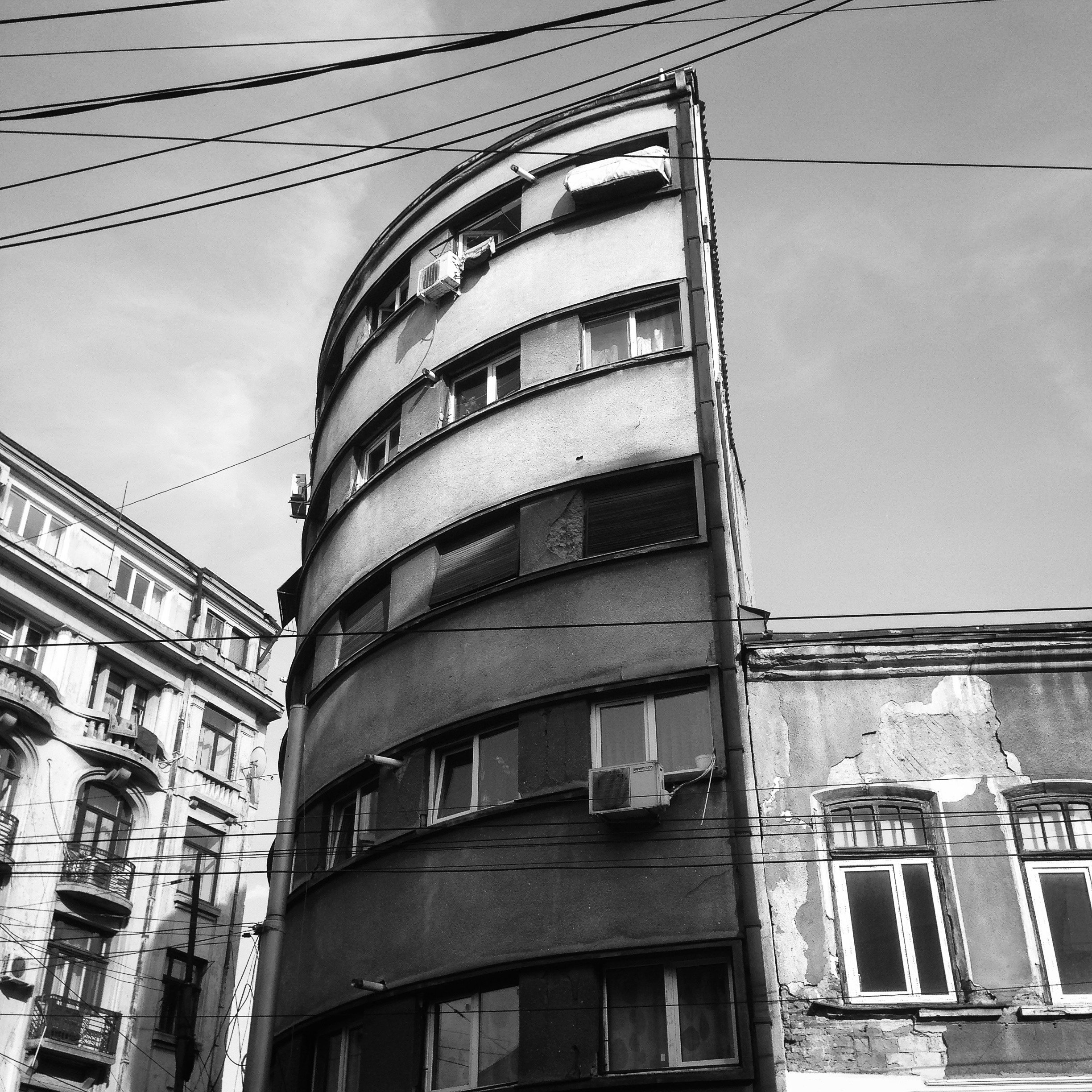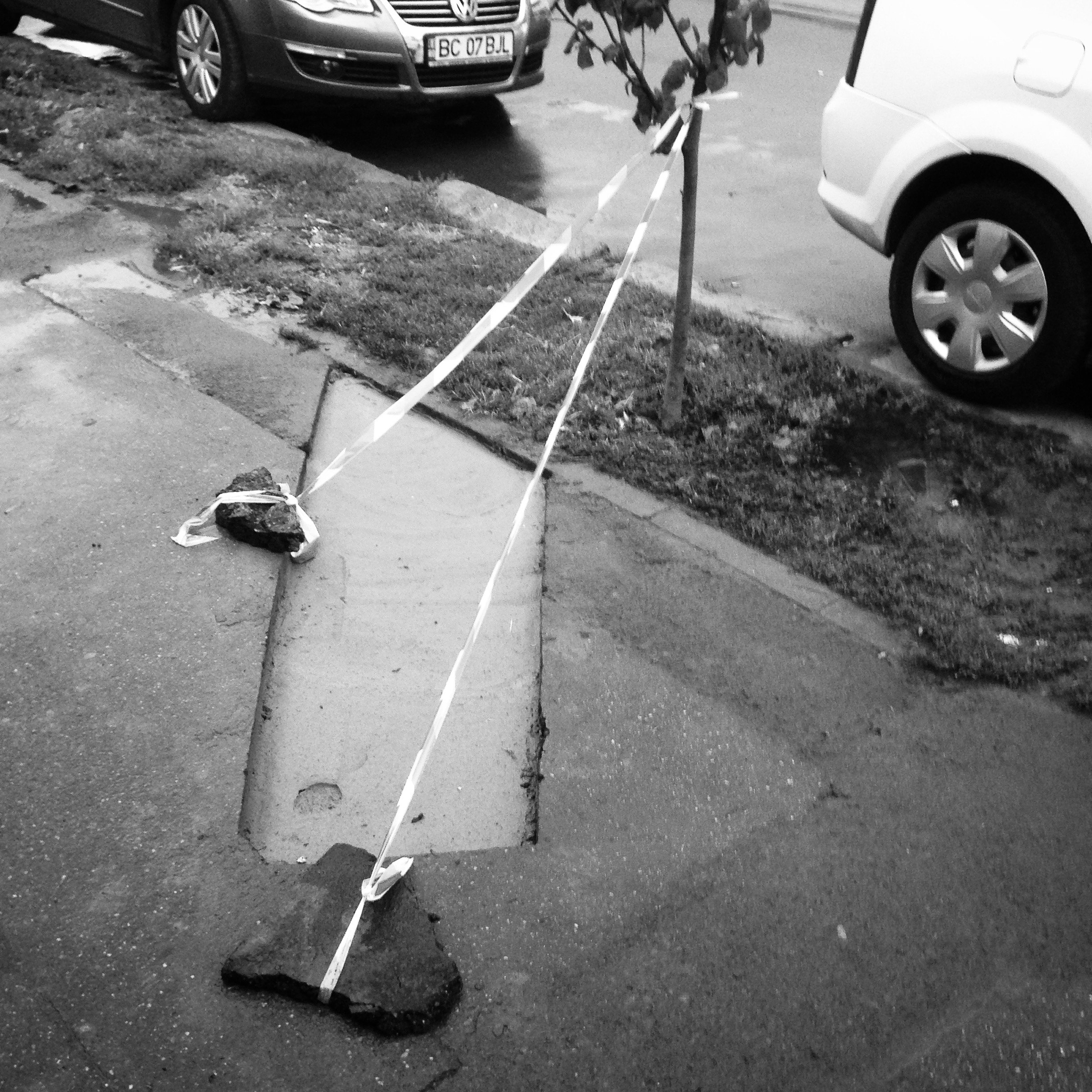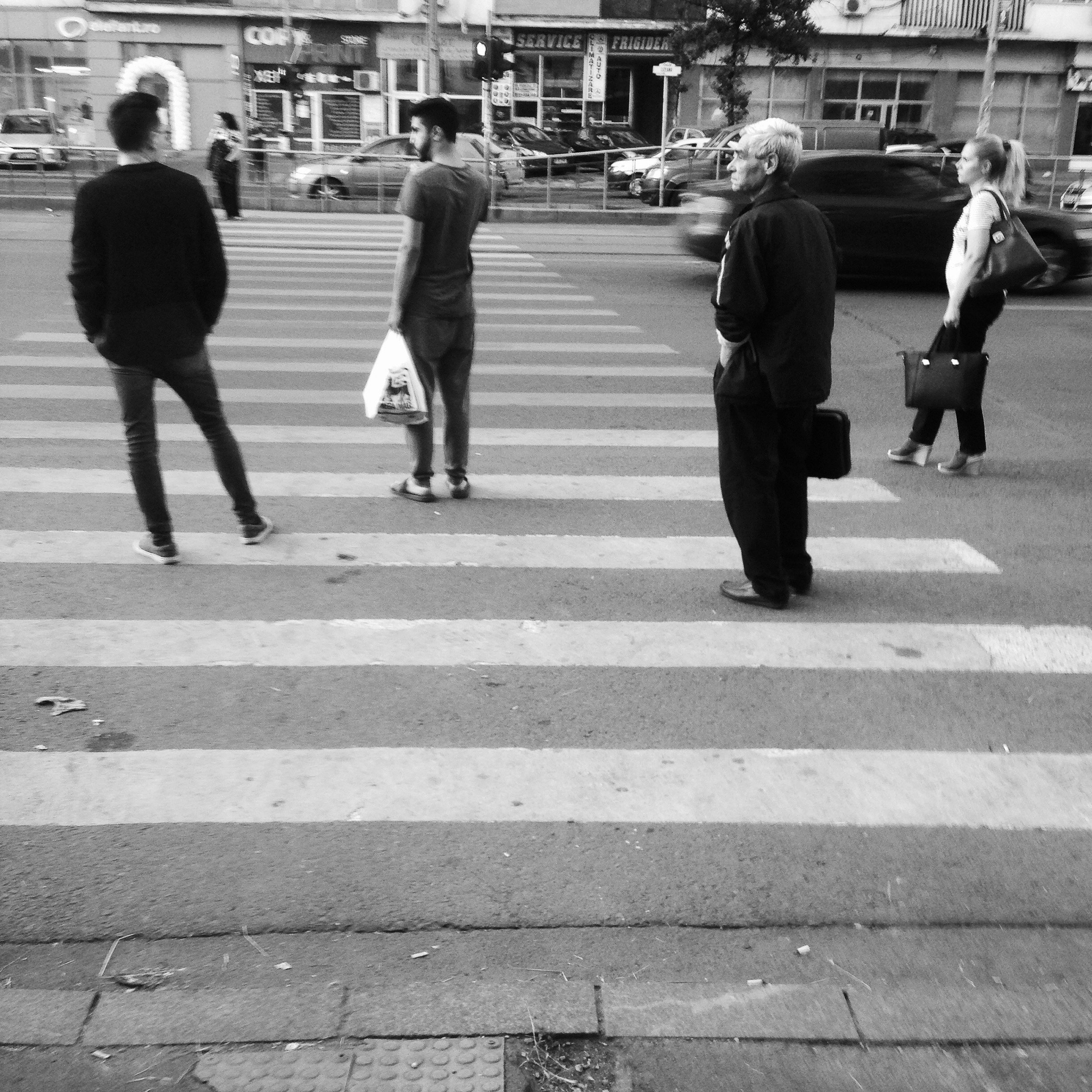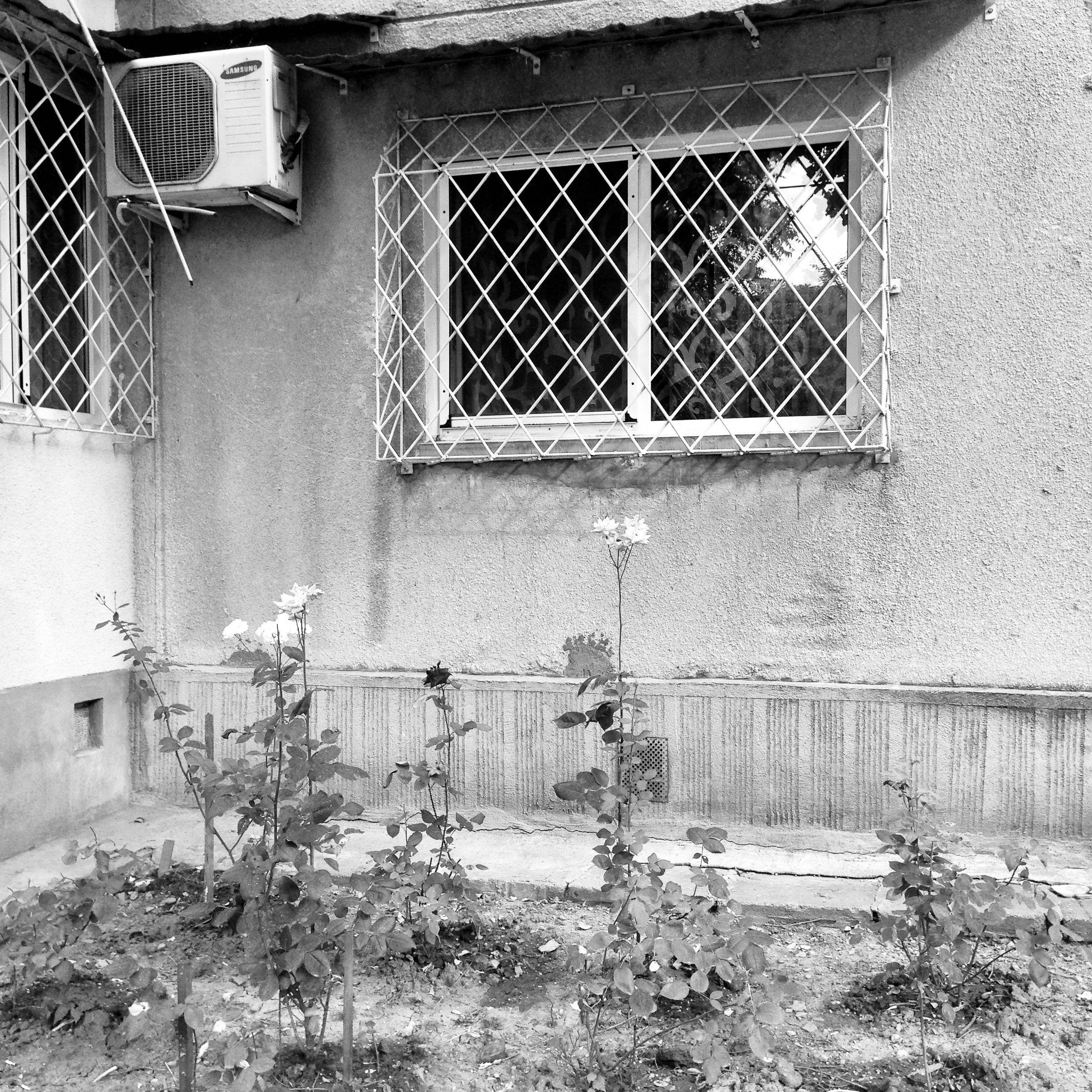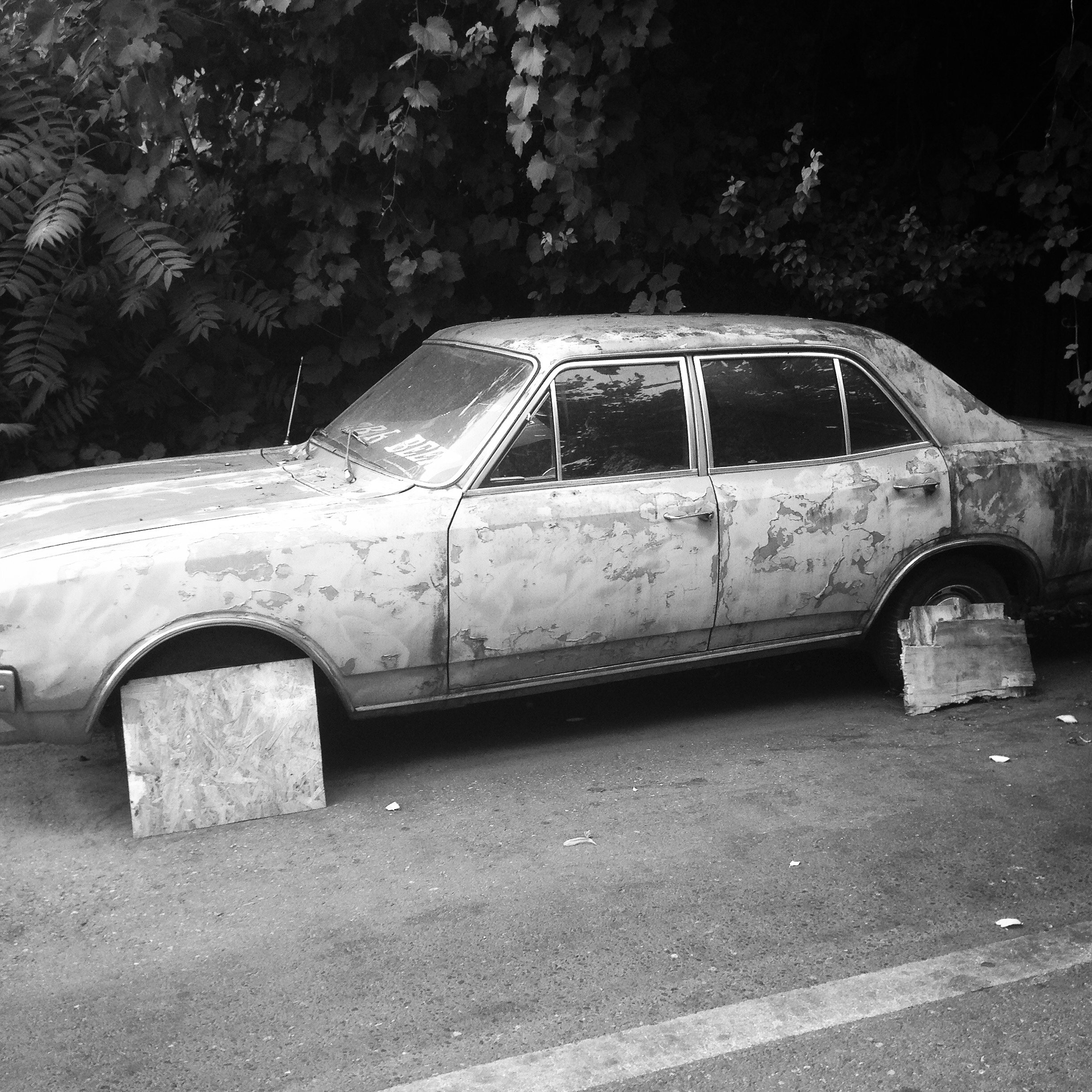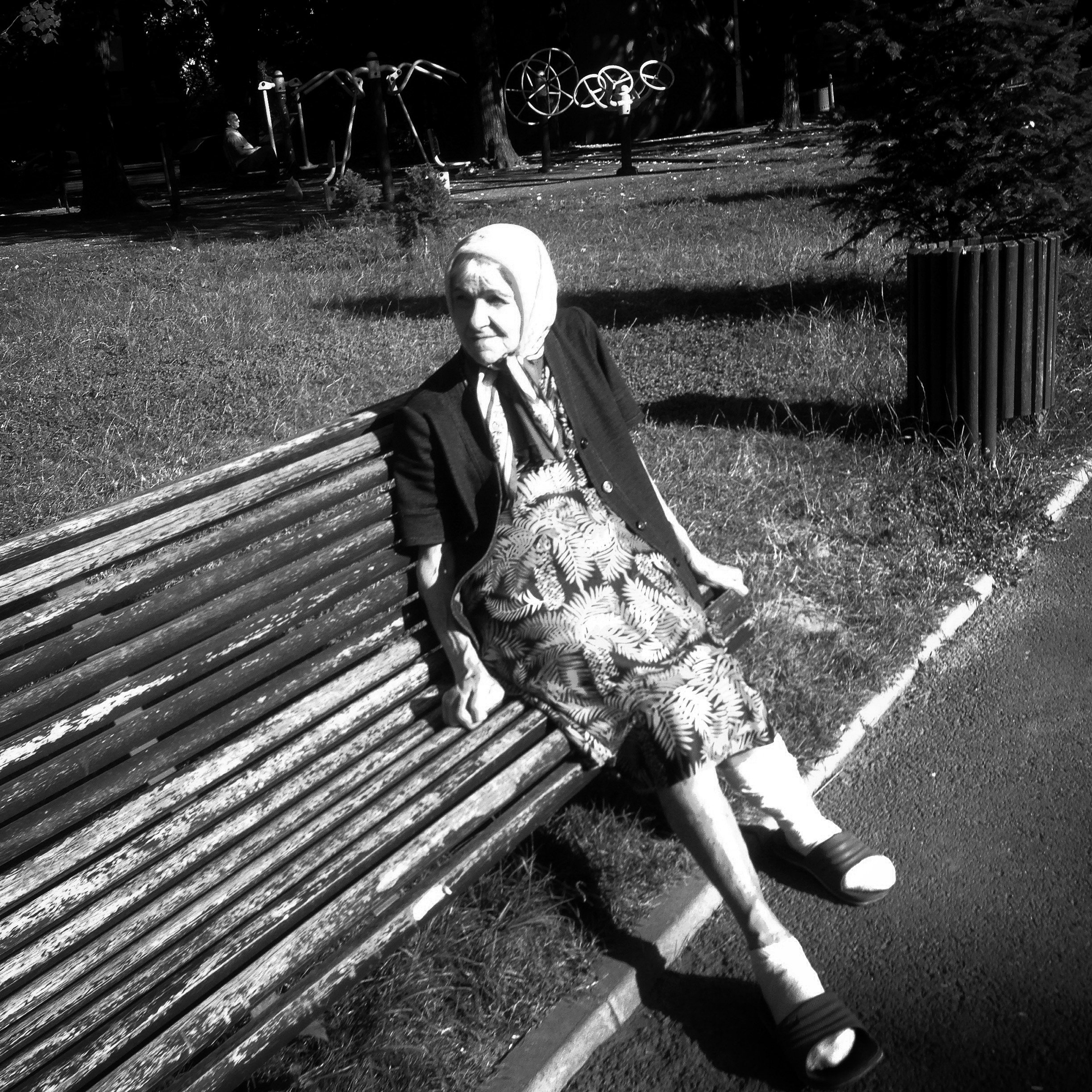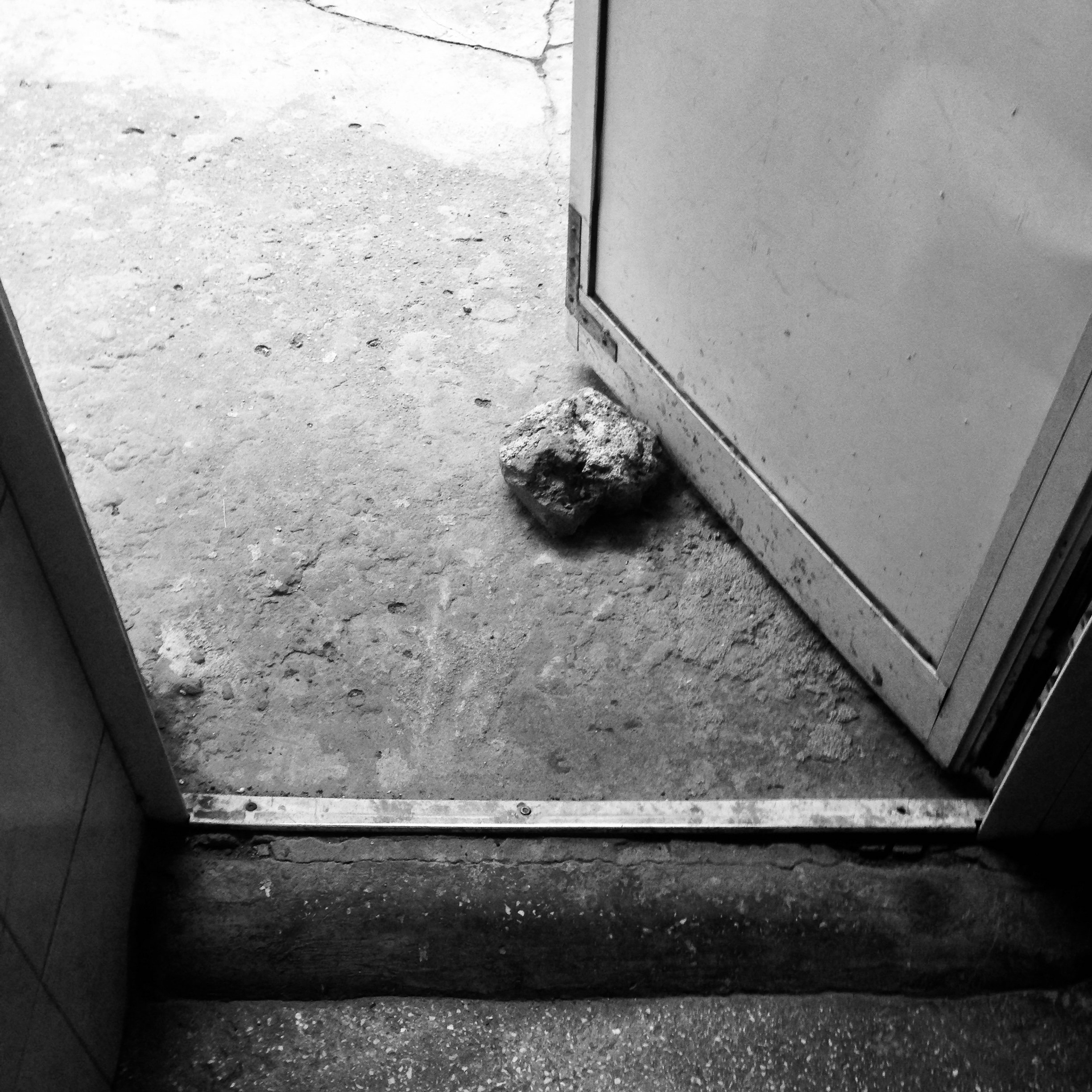Râsu'-plânsul - “laughing through tears” - is a Romanian expression that evokes the coexistence of laughter and sorrow which is deeply rooted in Romanian culture. It reflects the subtle tensions and contradictions observed in everyday urban life—particularly in a city where past and present continually collide.
My project explores the layered visual language of Bucharest’s streets: from informal structures and improvised signs used to mark parking spaces or claim small areas of public land, to the faces and bodies of people navigating the city’s fragmented terrain. These small interventions in the urban space—aimed at both taming it and marking territory, as well as protecting against unwanted presence—symbolize a micro-perspective on the struggle for visibility and survival in a city full of chaos.
Scattered throughout the images are remnants of a heavily modified urban landscape—buildings shaped by the top-down transformations of the Ceausescu era, now adapted by residents through personal, often improvised adjustments. Public space, once rigidly controlled, has become a patchwork of individual adaptations: improvised fences, handwritten signs, or material traces of daily life. These personal modifications reflect a quiet but persistent effort to impose order, assert presence, and resist erasure in a city that oscillates between chaos and control.
Abandoned cars, decaying facades, and informal street arrangements coexist with moments of human presence—ephemeral, vulnerable, and resilient.
